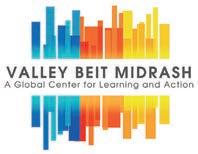COMMUNITY
Arizona is the latest state to adopt IHRA definition of antisemitism



SENIOR LIFESTYLE
Seniors in our community became a new rabbi, win weightlifting competitions and try to redefine ageism.

Arizona is the latest state to adopt IHRA definition of antisemitism



Seniors in our community became a new rabbi, win weightlifting competitions and try to redefine ageism.
It was at sleepaway camp when Noa Apple, then about 9 years old, first told someone she liked girls. She didn’t come out as bisexual until her sophomore year of high school.
And about a year ago, Apple, now a high school senior at Pinnacle High School in Phoenix, also came out as genderfluid, meaning that her gender identity fluctuates. She said that confiding in friends at NFTY Southwest helped give her the language to describe her gender and sexuality.
Before she came out, her friends test ran she/they pronouns for her (she now uses both), speaking to the open-mindedness, comfort and support that she has received from the local arm of the Union for Reform Judaism’s youth movement.
Meeting fellow LGBTQ people “showed me that people can define who they are instead of letting society define who they are,” she said. “I finally started to figure out who I was.”
Similarly, before NFTY, Apple didn’t really know what Judaism meant to her. NFTY has helped her realize that it means something different to everyone and that “there’s no set or correct way to engage with one’s Jewish identity.” Apple is also a member of Congregation Beth Israel and is involved in Beth Israel Temple Youth (BITY).
She knows that Judaism inspires her commitment to pursuing justice and equality, particularly through mental health and LGBTQ advocacy.
For this reason, she may one day become a lobbyist or lawyer. Next year, she’ll start studying political science at Barrett, The Honors College at Arizona State University, to prepare for her future career.
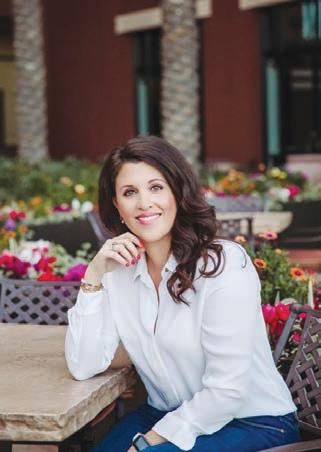
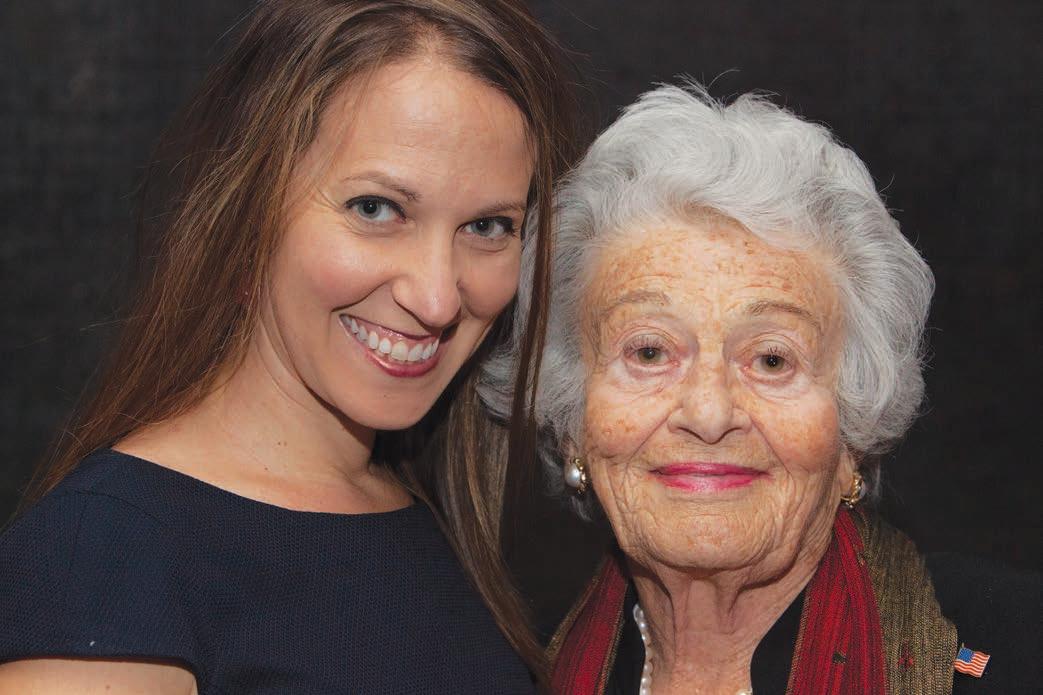
On May 1, a virtual tribute to Gerda Weissmann Klein was held through the organization she co-founded, Citizenship Counts (citizenshipcounts.org). The Klein family also created a virtual tribute memorial on the website inviting the public to share thoughts, memories and photos about Weissmann Klein. After the entries are collected, the family intends to turn these messages and tributes into a book.
Weissmann Klein died April 3 in Scottsdale, where she lived since 1985. She and her husband, Kurt Klein, moved to Arizona after he retired.

She was born May 8, 1924, to Helene and Julius Weissmann in Bielsko, Poland. Weissmann Klein was a teenager when the Nazis invaded Poland in 1939 and soon after, her brother, Arthur, was taken away on a transport. In April 1942, Gerda and her parents were ordered into the Bielsko ghetto. Two months later, Gerda, her mother and father were separated. Her parents were transported to Auschwitz and she never saw them or her brother again.
Weissmann Klein was sent to perform forced labor as part of the Gross-Rosen
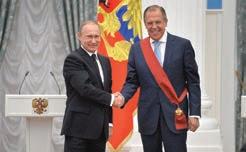
During her freshman year, she’ll also serve as president of NFTY’s North American board. While she is daunted by changes to NFTY that have come with the pandemic, among them a push to grant adult advisors less responsibility and youth leaders more, she’s looking forward to giving back to the community that has given her so much.
Apple remembers making lifelong friends at the first NFTY event she attended: a retreat at Camp Daisy and Harry Stein in Prescott, where everyone was singing and dancing.
“I felt like I belonged,” said Apple, who became a song leader the following summer. “I felt at home in a way, like I could really be my true self and show who I was, and no one would judge me.”
Arianna Walker, another local teen elected to NFTY’s North American board, also enjoys NFTY’s song sessions and friendship circles, which she said allow her to express herself through music.
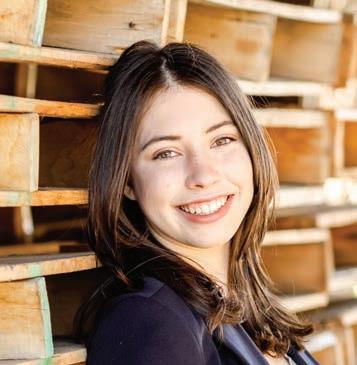
Both Apple and Walker were elected by their peers, Jewish teens that represented 19 regions from across North America who attended an online leadership convention, NFTY Veida, on March 4-6, 2022.
Starting in May, Walker, a Scottsdale junior at Rancho Solano Preparatory School and member of Temple Chai, will be the board’s communication vice president. For Walker, like Apple, NFTY has provided a Jewish connection after graduating from Pardes Jewish Day School and attending high school.
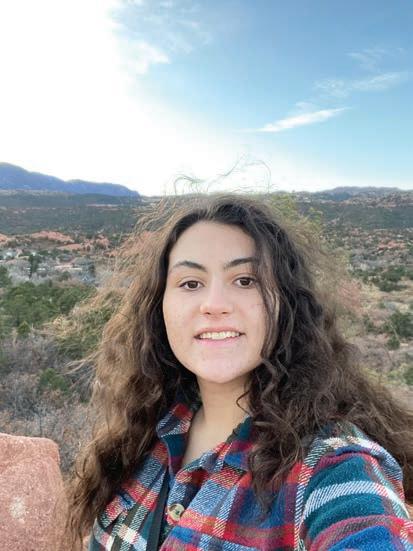
Walker also agreed with Apple that NFTY has inspired her interest in advancing social justice through a Jewish lens. She established her own B’nai Tzedek Youth Philanthropy Fund with the Jewish Community Foundation, a life-long, charitable endowment fund that she uses to support various causes. She is also a member of the Jewish Community Foundation’s
Youth Philanthropy Board.
Because of conversations and programming through NFTY, when Walker goes to college in two years, she will already know where she stands on certain issues, she said.
“Without NFTY, I don’t think I’d have a place to express a lot of my values,” she said.
“In a lot of situations outside NFTY, it’s hard to get your voice heard. NFTY has been a place where I’ve learned how to speak up.”
And she will also know how to keep an open mind and discuss controversial topics like the Israeli-Palestinian conflict. These skills will serve her well, she said, when she involves herself in Jewish life and activism on campus.
Luckily, she said, serving this year as NFTY Southwest’s membership vice president, and persevering through online events, has taught her to communicate effectively — as both a writer and leader. She is currently the editor-in-chief of her high school newspaper. And she’s considering studying media or communications in the future.
But until then, she’ll be spearheading NFTY’s outreach, merchandising and social media. She also wants to livestream Shabbats once a month, start a social action podcast and “make NFTY an experience that goes beyond events,” she said.
Both she and Apple — who, after two
years, is finishing up as NFTY Southwest’s religious and cultural vice president — want to give more teens the opportunity to shape NFTY, even if they don’t hold official positions.
Above all, Walker wants to ensure others have positive experiences like the ones she’s had.
“NFTY is like a second home,” she said. “Without NFTY, I don’t think I’d be the same person.”
Julie Marsh, NFTY North American manager shares how the program impacted her youth. “When I was on my regional board back in 1993-1994, I remember ending every cheer session with ‘Gonna live and die NFTY’ which really is more than a catch phrase, it is a framework for how I live Jewishly,” she said. “Tikkun olam, traditions, relationships, learning — they all helped to shape me into the person I am today. I believe it’s essential that Jewish teens find it important to be leaders in their communities.” JN
NFTY Phoenix, a partnership between NFTY and Phoenix area temple youth groups, provides local events to teens in grades 6-12 throughout the year. Each event is hosted by a synagogue in Phoenix. For more information, visit southwest.nfty.org/phoenix/.
Rudy Malcom is a Baltimore-based freelance journalist.
January 7
January 18
February 4
February 18
March 4
March 18
March 25
April 1
April 8
May 6
May 20
June 10
July 8
July 29
August 5
August 19*
September 9
September 16
September 23
October 7
October 14**
October 21
October 28
November 4
November 18
December 2
December 16
PUBLISHER Jewish Community Foundation of Greater Phoenix

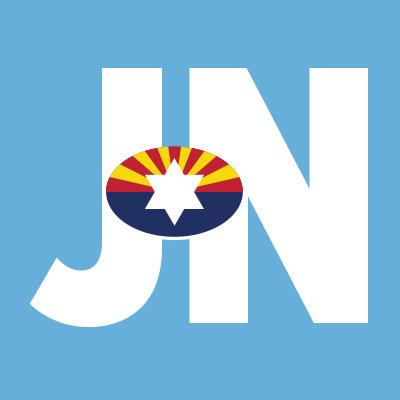
GENERAL MANAGER Rich Solomon | 602.639.5861 rsolomon@jewishaz.com
MANAGING EDITOR Mala Blomquist | 602.639.5855 mblomquist@jewishaz.com
ADVERTISING SALES CONSULTANT Jodi Lipson | 602.639.5866 jlipson@jewishaz.com


SUBSCRIPTIONS
602.870.9470 x 1 subscriptions@jewishaz.com
GRAPHIC DESIGNER Frank Wagner | 410.902.2300 ads_phoenixjn@midatlanticmedia.com
| 2013-2016
Florence Newmark Eckstein, Publisher | 1981-2013
Cecil Newmark, Publisher | 1961-1981
Pearl Newmark, Editor | 1961-1981
M.B. Goldman, Jr., Founder | 1948-1961
PROUD MEMBER OF

350-mile death march before being liberated by American soldiers, including her future husband, Army Lt. Kurt Klein. When she and other survivors were found on May 7, 1945 (on the eve of her 21st birthday) in Volary, Czechoslovakia, she weighed 68 pounds and her hair was prematurely gray.
Gerda and Kurt married in Paris on June 18, 1946, and started a new life in Buffalo, N.Y., where they raised their three children, Vivian, Leslie and James.
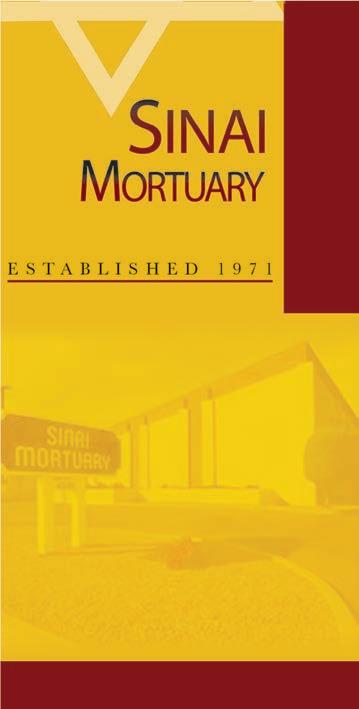
Weissmann Klein became an author, public speaker, humanitarian and the subject of an Emmy- and Oscar-winning film, “One Survivor Remembers.”
In 2011, Weissmann Klein received the Presidential Medal of Freedom from President Barack Obama. On April 9, 2022, Obama posted this message on Twitter: “Gerda Weissmann Klein was an author, a historian, and an inspiration to so many around the world. As a Holocaust survivor, she shared her story to remind us of the power of hope and the extent of our strength. Michelle and I send our love to her family.”
Weissmann Klein and her granddaughter, Alysa Cooper, co-founded Citizenship Counts in 2008 after Weissmann Klein was asked to speak at a naturalization ceremony in front of 800 students at Three Rivers Middle School in Ohio.
Cooper said that during that speech, her grandmother told the students — and the more than 80 people from 50 countries that were about to become U.S. citizens — she didn’t speak a word of English when arriving in this country. All she wanted to be was a mother, an author and a member of the community, and all those opportunities were afforded to her because of coming to the United States.
“Her formal education ended in eighth grade and her dreams came true tenfold,” said Cooper. “She was able to inspire not only the naturalized citizens but all the students there, too. And she just was so taken by that event and said, ‘I think students across the country need to have the same opportunity.’ So hence we got to work and started Citizenship Counts.”
Cooper said that whenever her grandmother was asked what her favorite event was — and Weissmann Klein traveled and spoke at events all over the world — she always said it was that naturalization ceremony.
Before they created Citizenship Counts, a nonprofit organization that educates middle and high school students on the tenets of citizenship, Cooper managed her grandmother’s speaking engagements, writing projects and fan mail — which she received several hundred pieces of a month.
That fan mail contained letters from students and teachers, but most of it was from individuals who were depressed or suicidal, sharing stories of heartbreak
and family tragedy. “Whatever hardship someone was going through, her message was, ‘never make a permanent solution to a temporary problem,’” said Cooper. “She never diminished what people were going through. Obviously, she faced unspeakable horrors for so many years and always talked about the will to live.”
Cooper explained that her grandmother’s story never changed but how Weissmann Klein adapted it to each audience did, whether she was presenting to a group of high school students, corporations or Jewish organizations.
“She always had this magical way of weaving her words and being able to speak to her audience,” said Cooper.
And despite all the pain and loss that Weissmann Klein endured when she was younger, Cooper said that by far the greatest loss was when her grandfather died on April 19, 2002.
“After the war, she had nothing. He was her world. He was her everything,” said Cooper. “After he passed away, she gave up public speaking and was very sad and depressed for a long time. My grandfather, blessed memory, used to always say, ‘Pain shouldn’t be wasted; it should be shared.’”
That philosophy led the Kleins to Colorado in 1999, after the tragedy at Columbine High School. “My grandparents went there and were able to help comfort the students, parents and members of the community,” remembers Cooper.
Over the years, the Kleins kept in touch with many of the students, becoming friends and even attending their weddings. The school’s former principal, Frank DeAngelis, became a close family friend and was one of the first phone calls that Cooper made after her grandmother died.
Cooper acknowledged the obligation to continue to share her grandmother’s story so that she won’t be forgotten.
“She always talked about speaking on behalf of the millions whose voices were silenced. When she shared her story, she would talk about survival being an incredible privilege; she had a deep obligation to share her story,” said Cooper. “We’re very fortunate we have her book; we have the HBO documentary. Her story is featured at the Holocaust Museum and she and my grandfather were videotaped with the Shoah Foundation for future generations.”
Weissmann Klein was one of the younger survivors and Cooper admitted that there’s a time in the not-toodistant future when we won’t have first-hand accounts.
“To me, she always was invincible and it’s like she’s cheated death so many times that I was naïve in thinking that it wouldn’t come for her,” said Cooper. “It was a peaceful ending, she didn’t suffer — for that, we are incredibly grateful.” JN
Mid-Atlantic Media, a fast-growing publisher of niche community and ethnic titles, is seeking a sta writer for its full time publishing project Phoenix Jewish News in Scottsdale, AZ. Phoenix Jewish News is an award-winning, print and digital publication covering the greater Phoenix diverse Jewish community since 1948. Our ideal candidate has experience with and enjoys writing both news and feature stories, thrives in a deadline environment and has digital media experience.

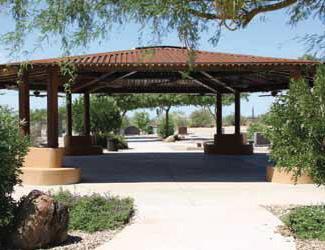
You love telling the stories and tracking down the facts that are at the heart of any article. You can thrive on multiple assignments and are flexible about evening and weekend work. Words and ideas are your oxygen. Photography experience is a plus. So is familiarity with Jewish community and Israel.
As an employee of Mid-Atlantic Media, you’ll be a part of a rapidly expanding organization that, in addition to the Phoenix Jewish News, publishes Washington Jewish Week, Baltimore Jewish Times, and other publishing projects such as Jewish Exponent in Philadelphia and Pittsburgh Jewish Chronicle. Such a range of outlets a ords writers the opportunity to have multiple bylines across the U.S.
If you are a confident and capable reporter looking for a new opportunity with a fast-growing media company, this is your chance.
NIKOLA CORPORATION IN PHOENIX, AZ IS SEEKING THE FOLLOWING ENGINEERING TALENT:
Develop and validate 1D models of vehicle’s thermal system in Simcenter Amesim; development of thermal arch; develop battery refr.system. Req’s Master’s degree in Mech Eng or related eld w/18 months of experience w/MATLAB, instrumentation (thremocouples, transmitters). Travel req’d
Develop 3D model routing and packaging; develop continuous design improvement for High Voltage and Low Voltage harnesses; support design review and DFM analyses. Req’s Bachelor’s degree in Mech Eng w/60 months of progressive work in Low Voltage and/or High Voltage wire harness design. Travel req’d

Design, implement and maintain PLM systems; ensure accuracy prior to eng con guration release against the Change Requests; update weekly progression of pilot build; lead the Change Advisory Board. Req’s Master’s degree in Automotive Eng, Industrial Eng or related eng discipline, w/24 months of exp.
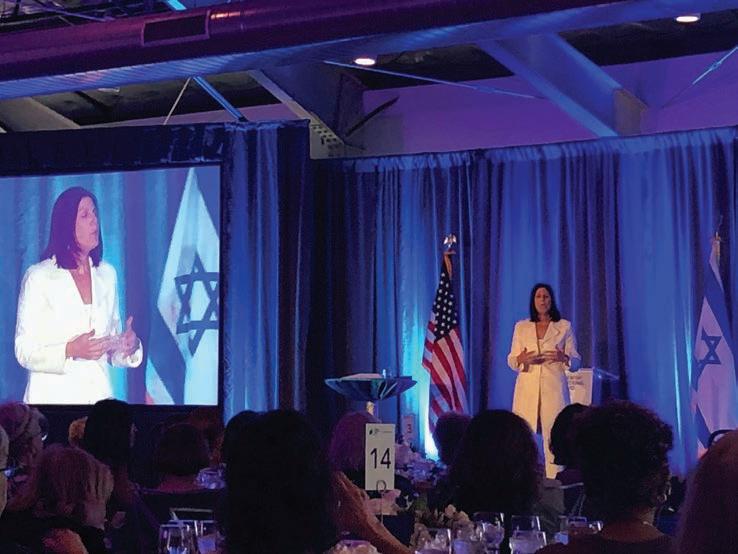 MALA BLOMQUIST | MANAGING EDITOR
MALA BLOMQUIST | MANAGING EDITOR
Co-Chairs Brooke Levy and Helen Locke kicked off the Jewish National Fund’s Desert States: Women for Israel Luncheon on April 27 in front of a full crowd of women (and a few men) at The Clayton House in Scottsdale. Levy stated that it was nice to see the crowd and that it was the first time since 2019 that women had gathered together for the luncheon.
The keynote speaker for the event was Alison Lebovitz, television host, TedX speaker, author and podcaster. She currently serves as a board member for JewBelong (where she is board chair), Jewish Federation of Greater Chattanooga, Fiedler Hillel at Northwestern University, Foundation for Jewish Summer Camp and the Tennessee Holocaust Commission. Since 2008, Lebovitz has served as co-founder and president of One Clip at a Time, a nonprofit inspired by the Paper Clips Project started in Whitwell, Tenn., promoting student activism and supporting service learning.
In 1998, Whitwell Middle School principal Linda Hooper asked language arts teacher Sandra Roberts and associate principal David Smith to begin a Holocaust education class that would be the basis for teaching tolerance and diversity in a voluntary after-school program. When the students, mostly white and Christian, struggled to grasp the concept and enormity of the six million Jews who died during the Holocaust, they decided to collect six million paper clips — one for each soul who perished — and the “Paper Clips Project” was born.
In 2001, the school received an authentic German railcar that became a permanent Children’s Holocaust Memorial. The students filled it with a portion of the more than 40 million paper clips collected to date. Then in 2004, a documentary entitled “Paper Clips” showed the world how the students responded to lessons about the Holocaust.
Lebovitz co-founded the nonprofit One Clip at a Time and worked with professional educators and curriculum experts to create a service-learning based curriculum, using the documentary and the project itself as a model, for how students and teachers can explore questions and challenges around their communities or classrooms locally and then find solutions that have an impact on the world.
“We started our first pilot programs in 2008. Since then, we have been hosting free, professional development institutes for teachers across North America,” said Lebovitz. “We’ve trained close to 500 educators from 29 states plus Canada — and counting.”

The curriculum is designed for students in fifth grade and up. Lebovitz clarifies that it is not a Holocaust education curriculum but a companion piece meant to complement history and social studies lessons surrounding World War II. To discuss what can happen when prejudice and intolerance go unchecked. And how to flip that paradigm and find ways to figure out what those challenges are in advance and then find solutions.
“That’s why it’s really service learning
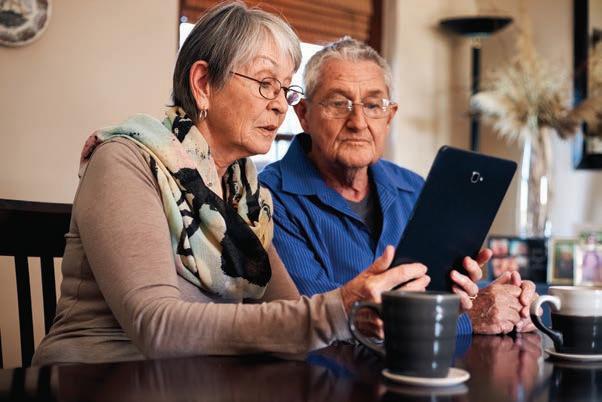
because the teachers do this in a way that it ties back to the curriculum already in the classroom. So it’s enhancing what they’re already doing,” said Lebovitz.
The students featured in the documentary now have their own children studying the curriculum and Lebovitz shared that everyone in the community understands the importance and are distinctly proud of the Paper Clips Project.
The importance of tolerance hit close to home in January 2022 when the 10-member McMinn County School Board in Tennessee voted to ban “Maus,” the Pulitzer-Prize winning graphic novel about the Holocaust.
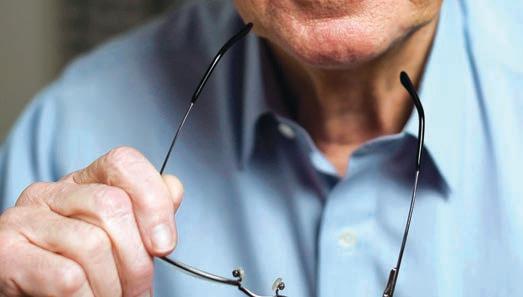
Lebovitz explained that she lives in Chattanooga, Tenn. and McMinn County is about 40 minutes north of her and Whitwell is 30 minutes to the east. “Here we are sandwiched between similar communities that couldn’t be more different in scope,” she said. “It’s just a matter of understanding. I think they [the McMinn school board] didn’t know, and if you don’t know something, you’re scared of it and when you’re scared, you tend to be aggressive, combative or even malicious. But when you know better — according to Maya Angelou — you should do better.” Lebovitz believes Whitwell is proof of what can happen in
a community that understands.
Lebovitz was born in the South and joked that she was “born, raised and chosen.” She returned to the South after living in Boston and Chicago and traveling all over the world and admits she wouldn’t choose any other place to live because “there is a really important intentional approach to Judaism when you’re in a smaller community.”
There can also be challenges, one of those being that she would have liked her three sons, Arthur, Abe and Levi, to have had the opportunity to go to Jewish day school. There was none in the area but she and her best friend did start a Jewish preschool in Chattanooga in 2002, Aleph Bet Children’s Center, and it’s still going strong. “Now, my boys go to an all-boys Christian school, so I think it’s made them even more dedicated to their Judaism.”
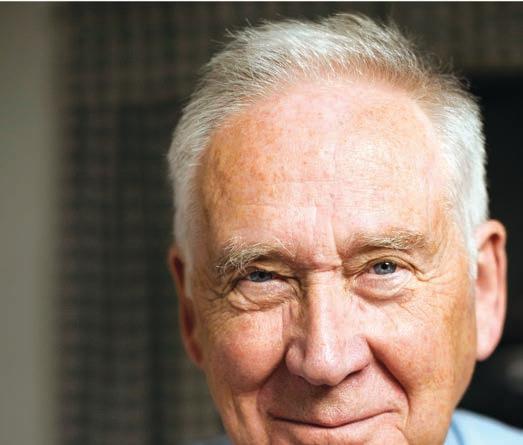
Lebovitz also enforces the rule that her parents had of being home on Friday night for Shabbat dinner. “We thought it was torturous and unfair. So, of course, I had to do the same thing to my kids,” she joked.
Lebovitz shared that when her oldest son was 15, he wanted to go out with his friends on Friday night. She told him that he was welcome to invite his friends over for Shabbat. He questioned whether his
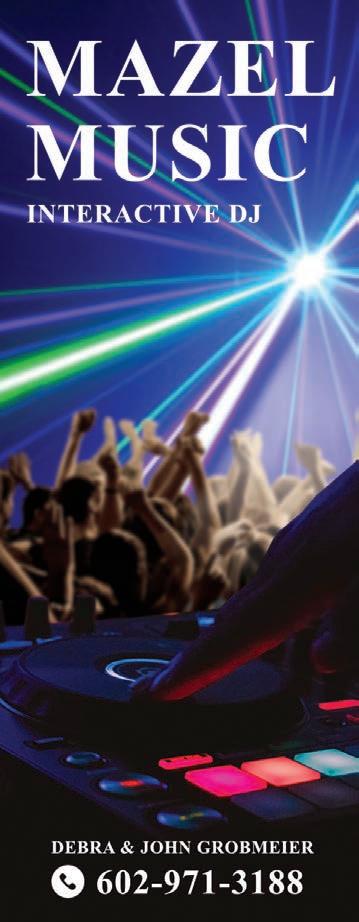
mom would really let him invite 10 guys over for dinner? Lebovitz told him to give her the final headcount and she would make sure that there was enough food.
The school’s name he attended with his friends was McCallie, so in 2016, the tradition of the McCallie Shabbat began.
“That has become tradition with all three of our boys and our youngest is a senior,” said Lebovitz. Even when the boys were on their senior spring break trip in the Dominican Republic, they asked to do “highlight of the week” at dinner like they did at McCallie Shabbat. “A lot of these boys probably never met a Jewish boy before and they certainly never put on the kippah and had to do the prayers over the candles, wine and challah. They understand that this is part of our family tradition and it’s now part of their high school tradition.”
Lebovitz said her Judaism frames everything she does. “I’m so proud of it and I find such joy in it. At the end of the day, it’s this idea of tikkun olam — I know it’s almost like a cliché — but it’s so true. Our words and actions are so powerful and provide a guiding light, not just for our own families and communities, but also for others who see us as examples.” JN
For more information, visit oneclipatatime.org.


 MALA BLOMQUIST | MANAGING EDITOR
MALA BLOMQUIST | MANAGING EDITOR








The state of Arizona passed SB1251/ HB2675 by a vote of 19-9 (Senate) and 49-4 (House) on April 19. The legislation adopts the International Holocaust Remembrance Alliance’s (IHRA) working definition of antisemitism, ensuring that the IHRA definition will be considered by state authorities when investigating incidents of crime or discrimination.
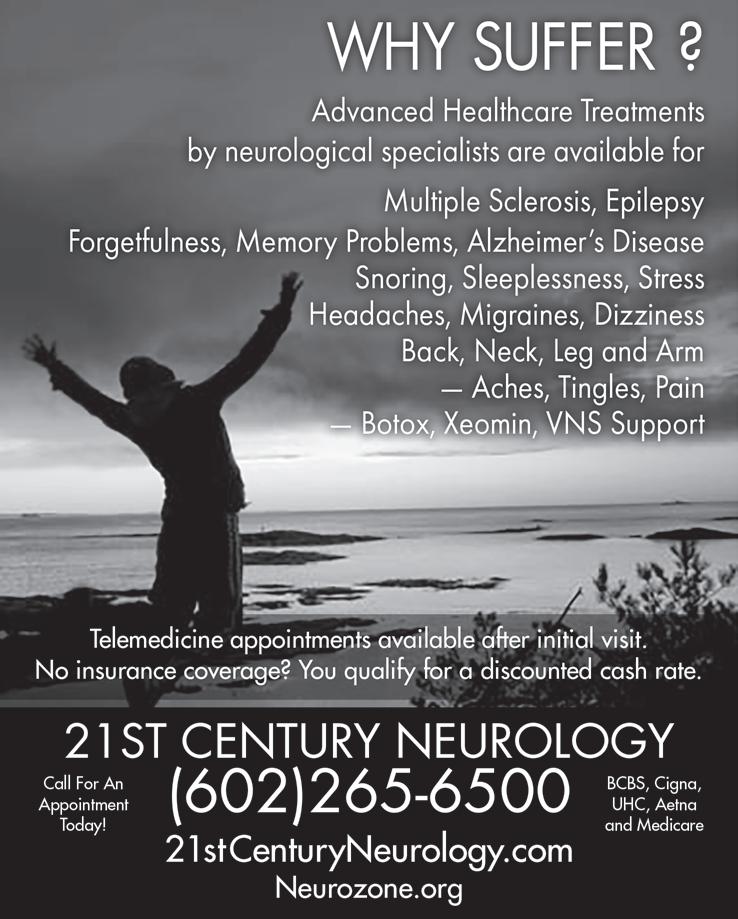
The IHRA defines antisemitism as “a certain perception of Jews, which may be expressed as hatred toward Jews. Rhetorical and physical manifestations of antisemitism are directed toward Jewish or non-Jewish individuals and/or their property, toward Jewish community institutions and religious facilities.”

The IHRA definition has been adopted or endorsed by 865 entities worldwide, including 37 countries and the U.S. Departments of Education and State.
“We applaud the state of Arizona for passing SB1251/HB2675,” said Stephanie Hausner, chief program officer with the Conference of Presidents of Major American Jewish Organizations.
“They are the 24th state to adopt the definition showing the broad support that exists for the most authoritative and internationally accepted definition of antisemitism, as well as the widespread view that it is critically important to define antisemitism in order to combat it successfully.”
The bill’s primary sponsors were Sen. David Gowan and Rep. Leo Biasiucci; the legislation was initially filed in 2020 but timed out due to the COVID-19 shutdown of the Arizona legislature.
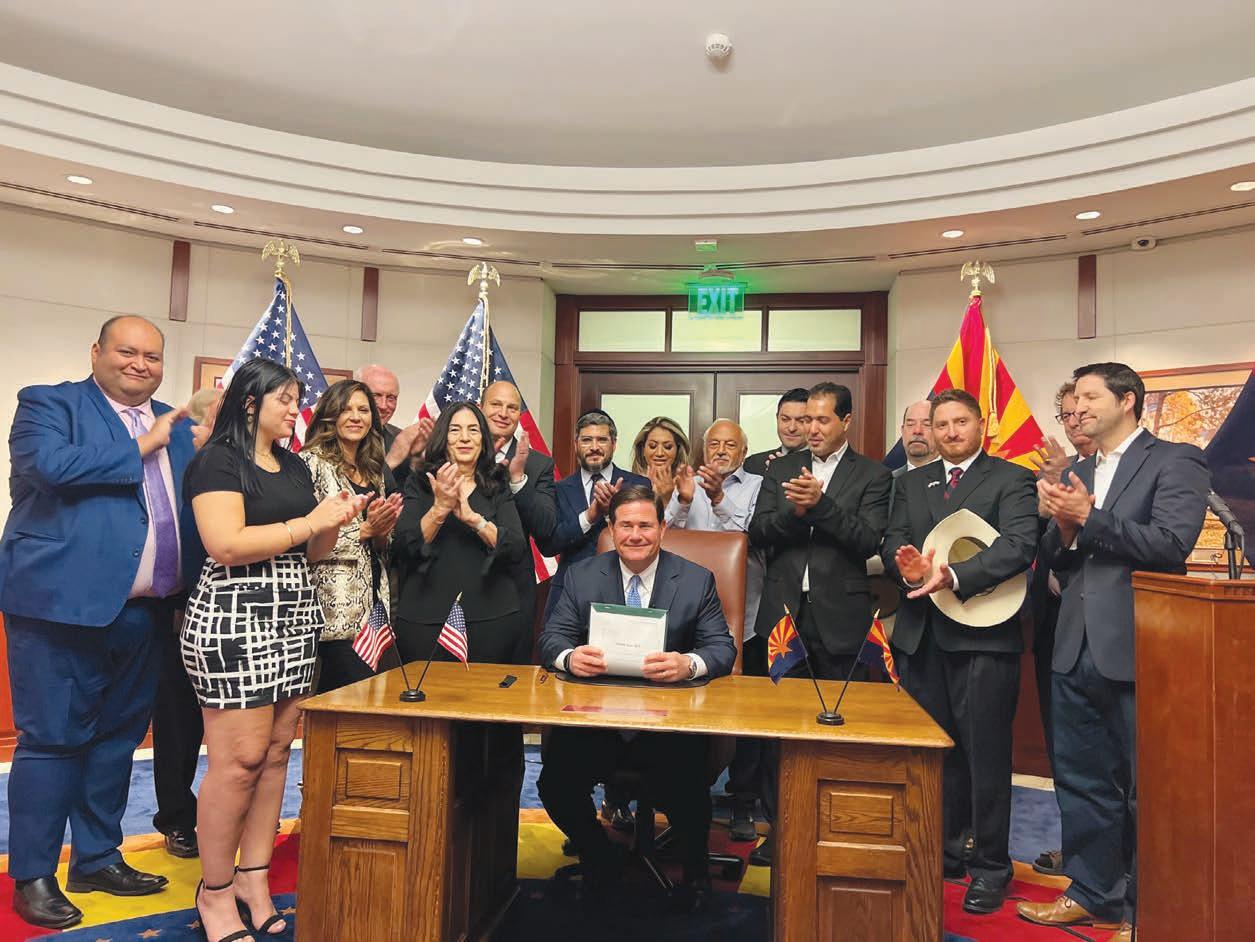
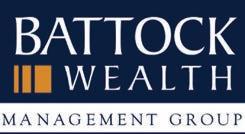


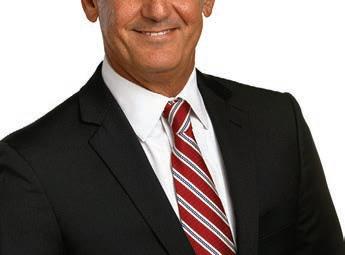
“We appreciate the legislators’ attention to the growing threat of antisemitism,” said Tammy Gillies, regional director with the Anti-Defamation League (ADL) for San Diego and Arizona. “The IHRA definition serves a useful purpose as nonlegally binding guidance and education for a range of stakeholders, including campus administrators, civil society organizations and other institutions. We look forward to partnering together to resolve some pending issues with hate crime data collection and ensure this law is implemented in a way that safeguards existing civil rights protections.”
According to the ADL’s Audit of Antisemitic Incidents, in 2020, antisemitic incidents remained historically high across the U.S., with a total of 2,024 incidents of assault, harassment and vandalism reported to ADL. Last year saw the thirdhighest number of reported incidents against American Jews since ADL started tracking the data in 1979.
The report also showed antisemitic incidents in Arizona rose overall by 10%, with a 45% rise in local antisemitic harassment specifically, while incidents involving vandalism and assault decreased only slightly.
“We are overdue for a clear definition to clarify antisemitism for law enforcement and other state officials,” said Jake Bennett, director of policy and legislative affairs for the Israeli-American Coalition for Action. “Our Jewish identity is complex, straddling as it does religion, ethnicity, national origin and ‘race.’ Likewise, our victimization is complex
of this year. Arizona is once again a leader in dealing with the crisis of antisemitism head on.”
A few days before the Arizona vote, on April 14, Ohio Gov. Mike DeWine ordered all state agencies, departments, boards and commissions, including all public colleges and universities to adopt the IHRA definition.

“HISTORICALLY, ANTISEMITISM HAS BEEN SO DEADLY DUE TO ITS EVOLVING NATURE, MAKING IT DIFFICULT TO IDENTIFY AND ADDRESS. ARIZONA’S LEGISLATION IS A FIRST STEP IN THE RIGHT DIRECTION GIVEN THAT THE IHRA DEFINITION ADDRESSES CONTEMPORARY ANTISEMITISM AND PROVIDES EXAMPLES OF SUCH BEHAVIOR,” STANDWITHUS CEO ROZ ROTHSTEIN
and often confusing to outsiders, who don’t always recognize it when it occurs without having it explained to them.
“This definition was crafted to educate about antisemitism,” Bennett continued. “Since 2010, it has been used by the State Department to evaluate incidents abroad and since 2019, it has been the official definition of the Department of Education for evaluating Title VI claims on college campuses. A further 20 states have also endorsed IHRA since January
“Historically, antisemitism has been so deadly due to its evolving nature, making it difficult to identify and address.
Arizona’s legislation is a first step in the right direction given that the IHRA definition addresses contemporary antisemitism and provides examples of such behavior,” said StandWithUs CEO Roz Rothstein in a statement released after the bill was passed.
Gov. Doug Ducey signed the bill into law at 11:30 a.m. on Monday, April 25. JN
Magen David Adom has been saving lives since 1930, some 18 years before Israel became a state. We take immense pride in being Israel’s national emergency medical service and in supplying the blood and medical care for the soldiers who have ensured Israel’s existence. Join us in celebrating Israel’s independence on Yom HaAtzma’ut
Save a life in Israel — and now in Ukraine too.
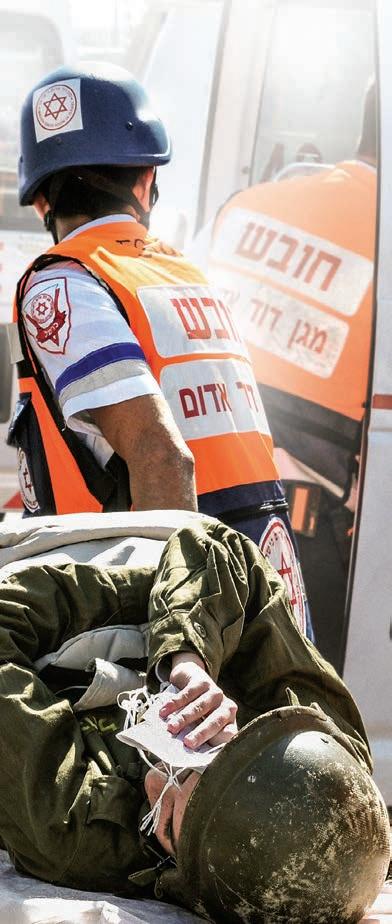
Support


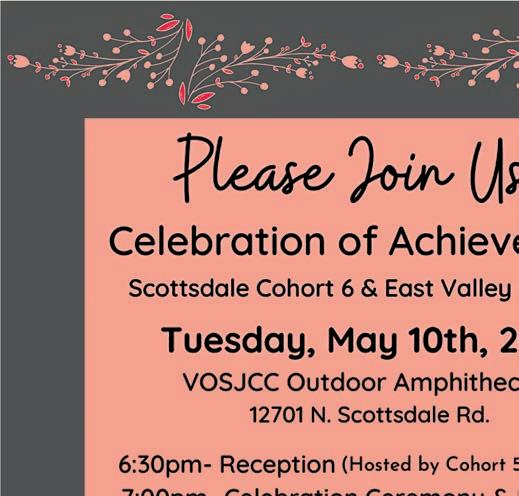
afmda.org



protecting
there’s been an
 ELYSE HORVATH
ELYSE HORVATH
Jackie Adler has been a student of women’s empowerment since she was a little kid.
With a certified public accountant (CPA) for a father and an insurance “guru” for a mother, she witnessed the individual successes of both of her parents, collecting mental notes and life lessons all along the way.
Even with a successful, full-time career, Adler’s mom always prepared a family meal so that they could spend time every evening connecting and discussing their day. Those family meals included discussions around work as her parents often consulted with one another. These dinner conversations created an early understanding of these complex roles and the importance of communication.
Years later, Adler found her own success in the financial services sector. She was thrilled to be in New York City, building a career with OppenheimerFunds at the World Trade Center’s south tower. Then came 9/11, bringing about a major crossroads in her life.
Jackie returned to her roots in Arizona, finding solace in her family and the Jewish community at Temple Chai in Phoenix, which had been instrumental in her formative years. She joined her mom at MassMutual Life Insurance Company, where the pair worked side by side for two years. She was doing well but hadn’t quite found her own niche to stand out within the field.
“I was diving deep within myself,” Adler shared regarding her soul searching, considering who was drawn to her the most in life and business, “and it’s always come back to women. I want to empower women.” She explained that women tend to open up more with other women. There’s this element of empathy, leading to meaningful conversations. Adler continued, “It’s a safe space where there’s no judgment.
They can ask any question they want.”
At her company, JDA Financial, she is a financial planner, coach and empowerment expert, creating a role for herself as someone who can be entrusted, like a therapist, with more than financial goals, although those are addressed in the process.
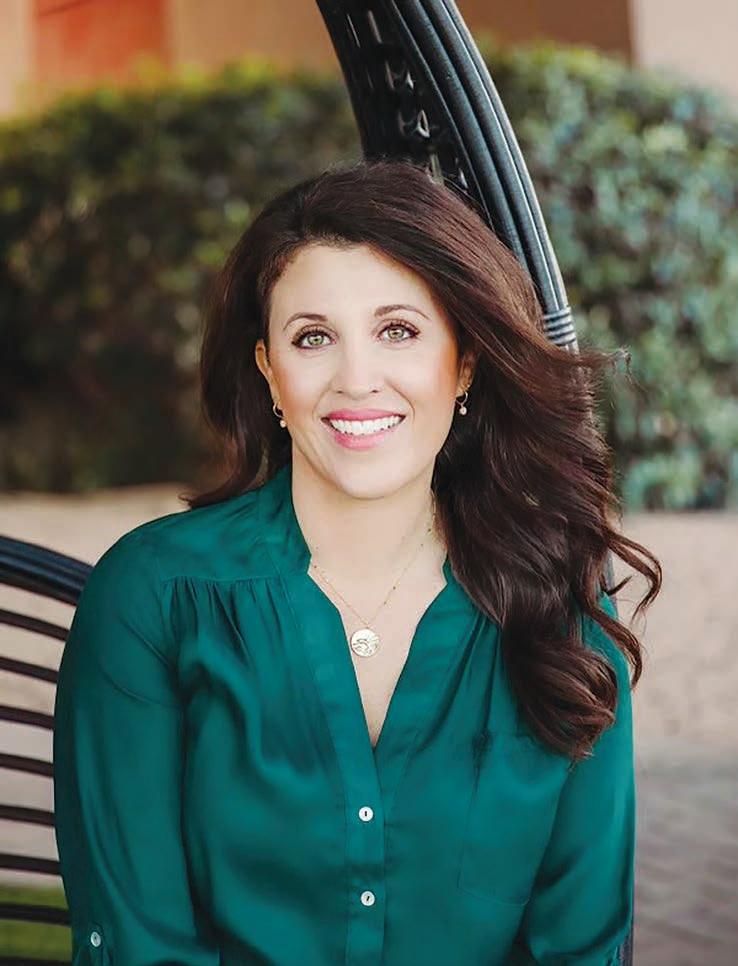
For newly single women especially, having a safe place to explore life goals can lead to a deeper understanding of what progressive steps can be taken throughout the process, including but not ending with that retirement milestone. She stresses
the importance of planning beyond that moment. “A lot of people don’t have the plan for income drawdown,” says Adler, “so there really has to be a plan in place and implemented for that next phase.”
Adler enjoys working with couples too, involving women more in the financial planning process. She guesstimates that roughly 80% of married women will rely on their husbands to maintain the couple’s financial health. This applies even when the wife runs the household and pays the bills. “The amount of true-life stories where something happens to the
husband, even becoming incapacitated for a brief amount of time. The wife is focused on making sure her husband recuperates,” said Adler. “Maybe she didn’t meet with the financial advisor [originally] because her husband takes care of that and she has no relationship with that person or the attorney. That’s where the nightmares happen and that’s what I want to prevent.”
Expert guidance also comes into play when a couple is ending their marriage, which she says isn’t always a contentious occurrence. If a couple finds that their marriage isn’t working, the concept of collaborative divorce can come into play, wherein attorneys aren’t necessarily involved. A certified divorce financial analyst (CDFA) like Jackie serves as the financial specialist, divorce coach and also as mediator. Adler explained, “Divorce attorneys are trained in the law; they are not financial experts. When we look at assets in a marriage — whether it’s separate property, marital property, retirement plans, real estate, IRAs, pensions — [they] all have different taxation and exclusions.”
The bottom line is that you have to plan for the worst and hope for the best. A financial plan is constantly changing because life is always changing. “Whatever’s keeping you up at night or your pain points, that’s what we want to solve. Everyone, every couple should have their own advisory board.” She adds, “Any time I face an obstacle, I just put one foot in front of the other. You know it may not go fast, but if you’re determined enough, you will get there. And no one can take that away from you. That’s truly empowering.” JN
For more information, visit jdafin.com Elyse Horvath is an entrepreneur and freelance writer living in Scottsdale.
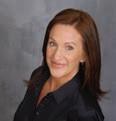

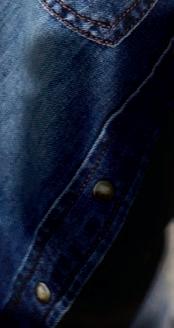
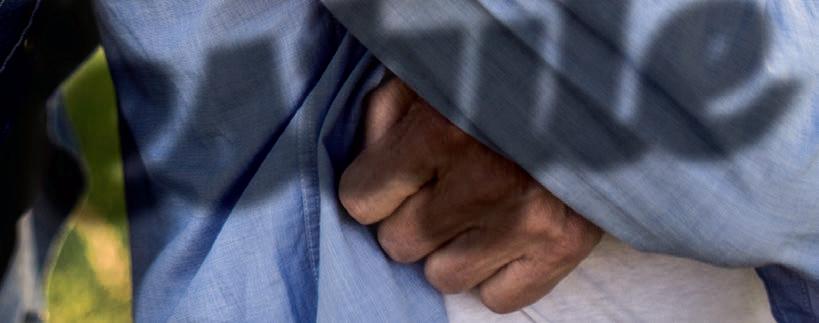
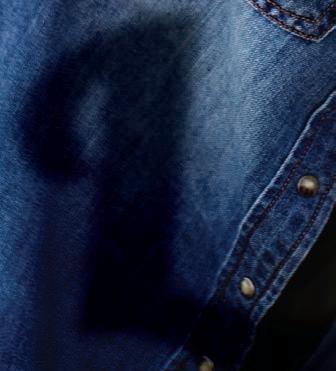
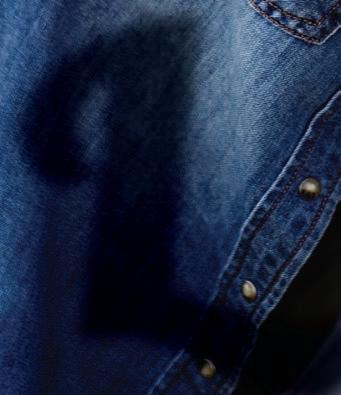
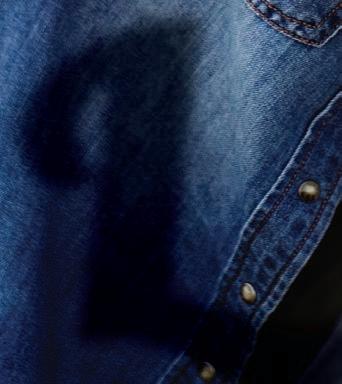
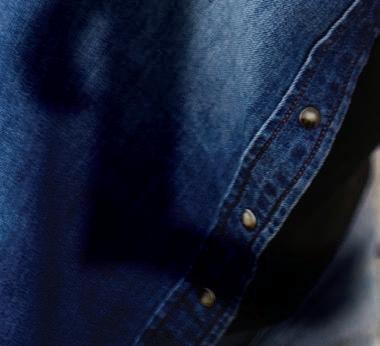


Sharon Salomon’s powerlifting journey took off 12 years ago with one goal in mind: to be able to do 10 straight-leg (military) pushups.
“I thought I was stronger than that, but I was unable to do what you would call a ‘man’s’ pushup,” said Salomon, who turns 78 in June.
So, she hired a trainer in Phoenix who helped her reach that goal. He told her that she was naturally strong and nudged her to try a squat, “just for fun.”

Salomon took his suggestion and lifted weight from a squat position. Then she tried the bench press and the deadlift (a lift from a floor position to standing). These three weight lifts constitute the strength sport known as powerlifting and powerlifting competitions may be comprised of one, two or all three of these lifting disciplines.
Salomon grew stronger under new trainer, Tricia Lucero, and began competing in the Arizona Senior Olympics. She won consistently in the senior women’s category, sometimes because there were no other competitors. Now she competes in statewide contests sponsored by the USA Powerlifting Association.
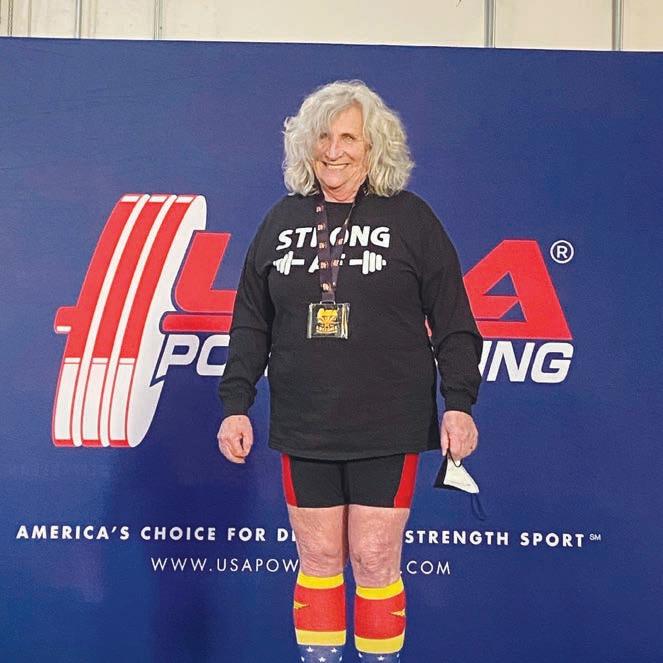



She is the oldest female powerlifter competing in Arizona for USA Powerlifting. Salomon is 5-foot,
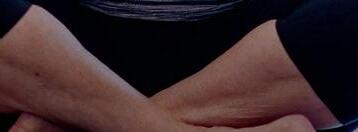
the bench press and 205 pounds for the deadlift. She remains consistent, powerlifting three times a week for half-hour sessions outdoors in her trainer’s backyard and wearing a mask because of COVID-19.
She is careful to avoid injury. “I never get hurt. My trainer knows that if I say no, it’s not because I’m lazy. I’m saying no because I know it’s going to hurt me. I don’t want to be injured because, at this age, getting injured means it’ll be a long time before I can do anything again.”
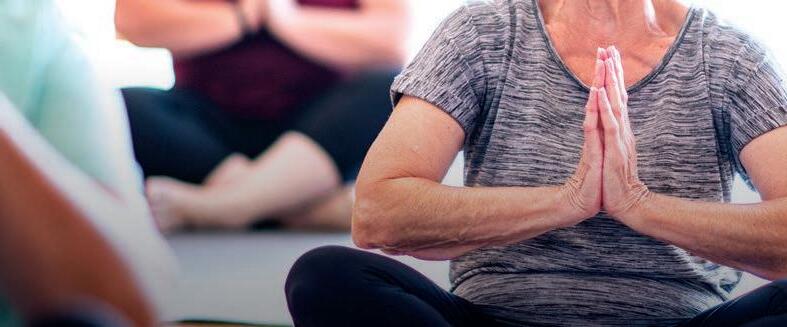
Salomon has always been active. She played volleyball until eight months pregnant and after giving birth to her first child, learned to play tennis. After her second daughter was born, she joined a gym for the first time and did high-impact aerobics.
Then there was jogging and the gift of a mountain bike for her 50th birthday. “I never loved any of it until I found lifting,” said Salomon. “I very much like to be strong, stand straight and walk fast. I like to feel powerful.” On non-training days, she gets her cardio exercise on a stationary bike at home. What she loves about powerlifting events is the camaraderie. “Everyone cheers for everyone else. Sure, it’s a competition, but it’s a friendly competition.”


Salomon has lived in central Phoenix for 45 years with her husband, Felix, a psychoanalyst. They have two daughters in their 40s, both living in California, where the Salomons spend their summers. One daughter is a
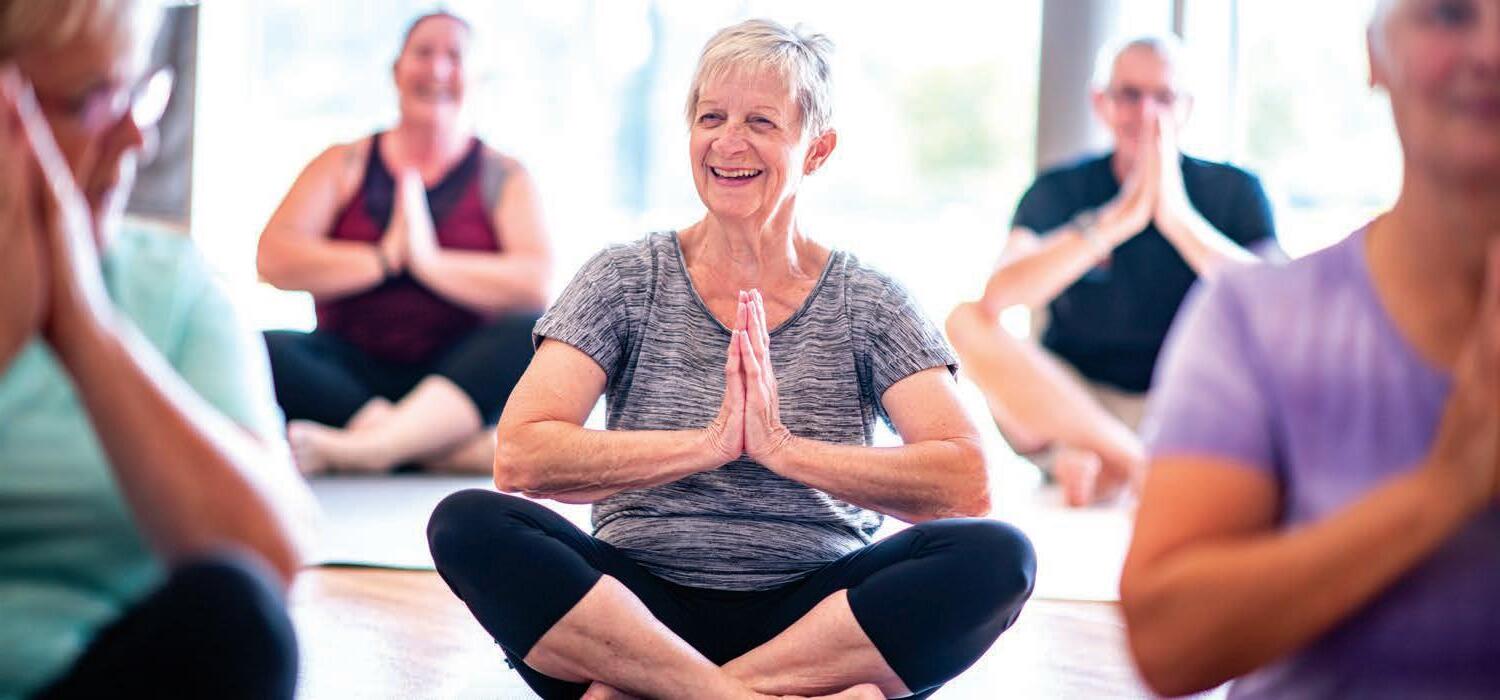
movie producer and director. The other is a substance abuse counselor who herself battled a heroin addiction for 15 years. “People don’t think Jewish people have those issues,” Salomon said, “but my parents were alcoholics and my sister was a cocaine addict — and I exercise.”
It’s not an addiction, she is quick to say. “I’m basically lazy. Nothing makes me happier than sitting down with a book. And cooking.”
The Salomons belong to Temple Chai in Phoenix and attend services every Friday night. She has traveled to Israel with the Reform temple and has chanted from the bimah for her adult bat mitzvah ceremony.
“I promised I would do that someday because where I grew up, in Manhattan and Queens, girls were not invited to the bimah. I lived across the street from an Orthodox synagogue. So that was definitely not going to happen there.”
Salomon, liberal and left-leaning, has also been active with Arizona Jews for Justice. This pluralistic Jewish group that provides a forum for Jews in Arizona to collaborate and create positive change in the community.
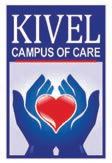

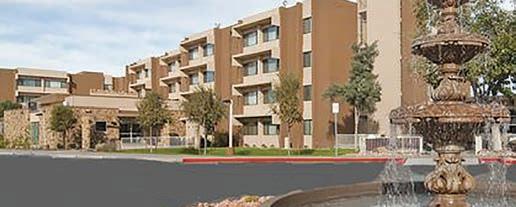
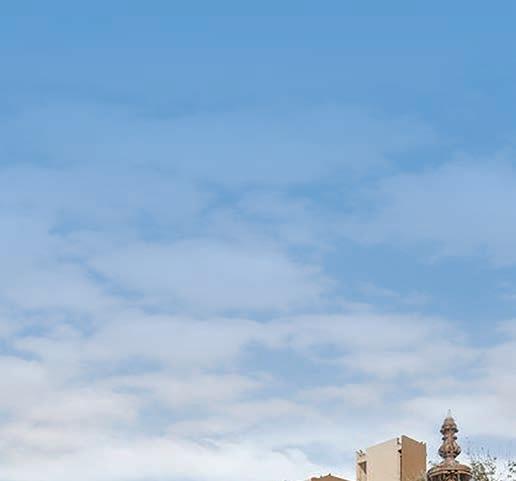

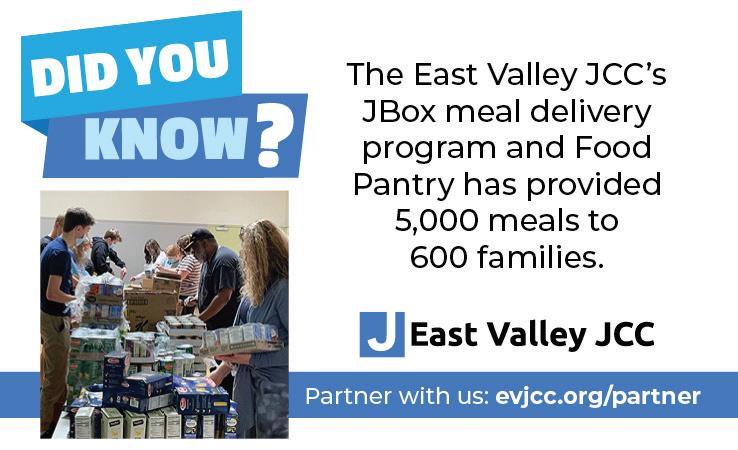
During her working years, she was a registered dietitian and upon turning 50, went to culinary school in France. She came back to work in a commercial kitchen and used to have a challah business, baking both sweet and savory varieties. Salomon became one of the owners of Barrio Café on 16th Street and was the “Food Guru” on KTVK 3TV in Phoenix.
She writes articles on nutrition and fitness, expounding on the need to stay active regardless of age. “I think that everyone can find something that will help keep you active, even if it’s sitting in a chair and doing exercises.
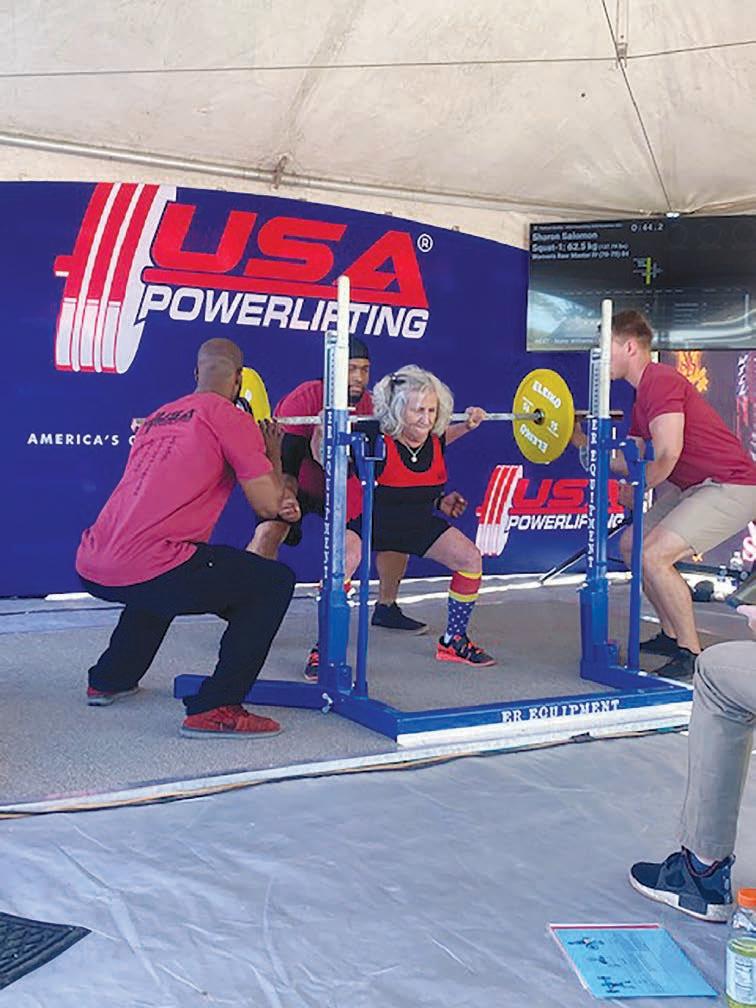
“I happen to be healthy and active. No one in my family has lived this long. So, it’s not that I have longevity in my family — it’s because of how active I’ve been that I’m still healthy.”
Salomon is an inspiration to her peers.
“When I’m at a competition, someone older will come up to me, a spectator, and they’ll say, ‘You motivated me.’ That makes me happy to know that.” JN
Ellen Braunstein is a freelance writer based in Chicago.

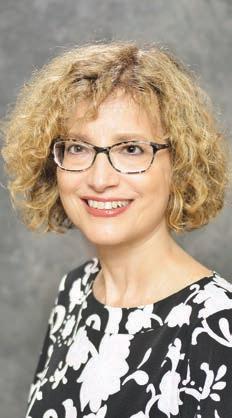

The pandemic has been a challenging time, but for Jeffrey Schesnol, ordained madrikh and rabbinic candidate, it expedited the completion of his goal to become a rabbi. “I couldn’t have proceeded with the ordination until I got my master’s degree,” he said. “It’s part of what’s required, and luckily I was able to do it in a year and a half instead of three, or more, years.”
Schesnol is 79 and admits he had doubts about whether he was ready to become a rabbi. A conversation with Holocaust survivor Oskar Knoblauch alleviated those doubts.
‘I said to Oskar, who was 93 at the time, ‘Am I getting too old to consider going all the way for rabbinic ordination?’ and Oskar said, ‘If you’re passionate about it, do it.’ So I said, ‘Well, I have the passion and I’m going to follow your advice.’ So here I am and I’m glad for having done so.”
He was able to complete his Master of Arts in Jewish Studies from the Spertus Institute for Jewish Learning and Leadership online instead of traveling to Chicago for in-person classes and received his rabbinic ordination from the International Institute for Secular Humanistic Judaism on April 22.
Or Adam Congregation for Humanistic Judaism has never had a Humanisticordained rabbi and Schesnol has served as their ceremonial and spiritual leader since 2013. Or Adam, Hebrew for “Light of Humanity,” is planning a celebration for the congregation’s 35th anniversary and Schesnol’s ordination at the CutlerPlotkin Jewish Heritage Center, where he is the associate director, on May 21.
“The congregation feels that this is going to give the whole organization a level of recognition, and I would say acceptance, which isn’t always the case when you’re dealing with a little bit different approach as Humanistic Judaism is,” he said.
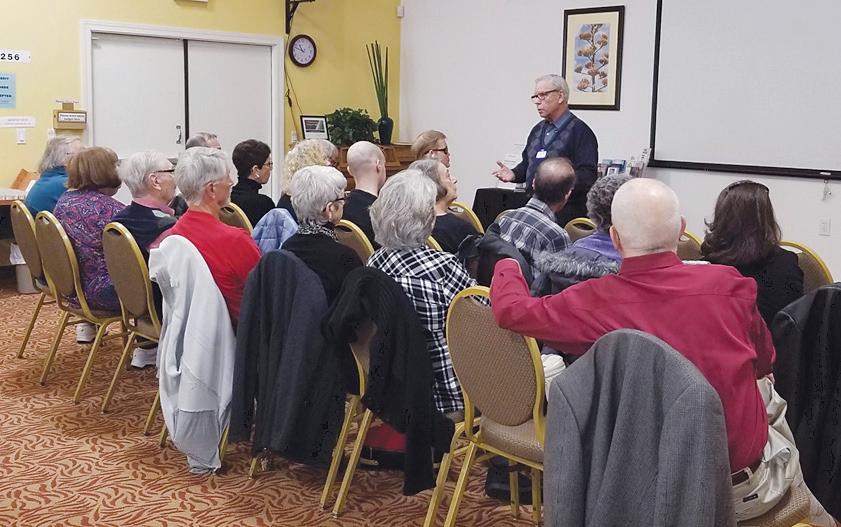
He explained the essential tenets of Humanistic Judaism. “We feel that it’s up to each of us as individuals and for us as a community to try and make the world a better place. We shouldn’t wait for God or the government or any other individual or organization to do that important work. It’s up to us. It’s our responsibility to perform tikkun olam and make this world a better place.”
Or Adam has been meeting via Zoom during the pandemic, but they will begin a hybrid model of both in-person and virtual services starting on May 21. Schesnol states that since holding services over Zoom the last two years, the congregation has become “borderless”
and now has members in Tucson, Casa Grande, Calif., Illinois and even New Zealand.
“When we start our services at 7 p.m. on Friday night, it’s 3 in the afternoon on Saturday in New Zealand,
so we’ve definitely expanded our horizons geographically,” he said.
Schesnol, who admits that he doesn’t know the meaning of the word retire, will also continue his work with the Arizona Jewish Historical Society. He is a certified
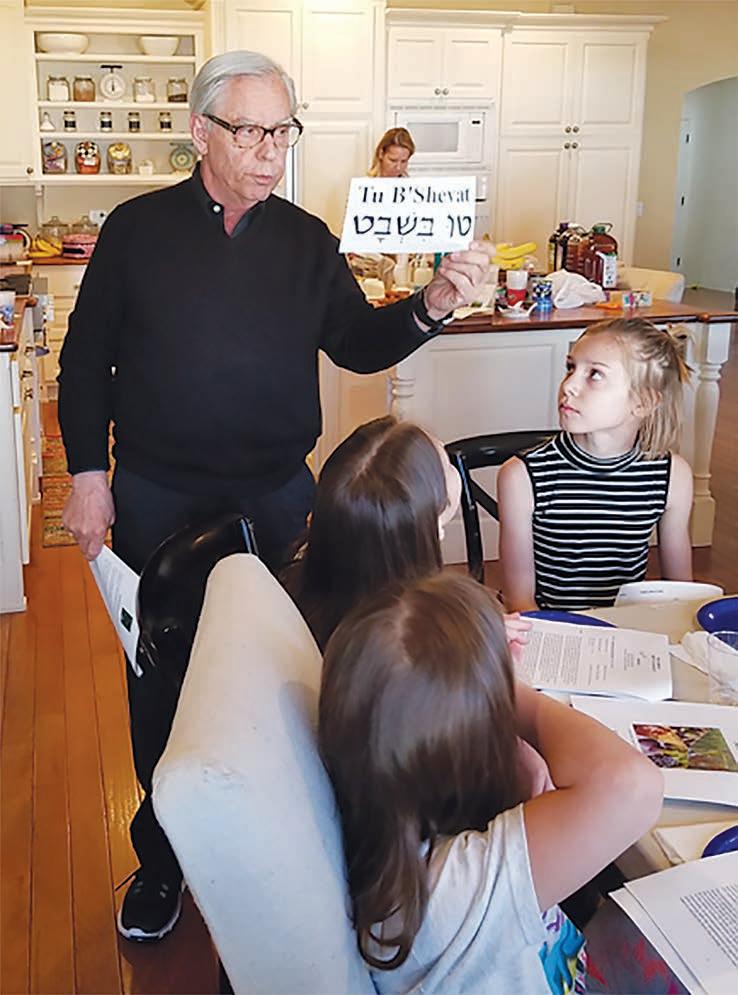
PMP (project management professional) and has taken on the role of project manager for the new Holocaust and human rights center. The center will be added to the existing CutlerPlotkin Jewish Heritage Center in downtown Phoenix.
“I think being a rabbi will enable me to have more opportunities with other organizations, to be able to make what we’re trying to build even more legitimate, significant and important,” he said.
Schesnol noted that Phoenix is one of the few large cities in the country that doesn’t have a Holocaust education center and he feels that overall the Jewish community isn’t anywhere near as informed as they should be, or could be, about their own Jewish culture and heritage.
He states that the project will take about $15 million and the Arizona Jewish Historical Society has already raised $6.25 million. Their goal at the end of the summer is to be at $8 million. The next step is to have a planning meeting with Gallagher & Associates, an internationally recognized museum planning and design firm whose projects include the ANU-Museum of the Jewish People in Tel Aviv, National Museum of American Jewish History in Philadelphia and the Musical Instrument Museum in Phoenix.
The next milestone will be raising $10.5 million or 70% of their goal. Reaching 70% means the ability to apply for a grant from the Virginia G. Piper Charitable Trust, which, if awarded, will be $1.5 million.
“So, if we get to $10.5 million, then get another $1.5 million from Piper, we will be at $12 million — then we’re in the home stretch,” said Schesnol. “We’ll start pulling permits, doing zoning and any variances required. Then we talk in earnest with the city. We have already approached them and asked for $2 million toward this project.”
Schesnol said that Phoenix Mayor Kate Gallego (who is Jewish) has visited the Arizona Jewish Historical Society on numerous occasions and he points out that most cultural museums in Phoenix have had financial support from the city.
If all these things fall into place, there will be either a groundbreaking or ceremonial groundbreaking in 2023 and the center will be open in 2024.
“It’s not easy, no,” said Schesnol. “But you know, you do things in life you’re passionate about and you do them because you’re really committed.” JN
As Mayor Kate Gallego addressed the crowd at the ribbon cutting on April 19 for Hospice of the Valley’s Dementia Care and Education Campus in Phoenix, she shared that she had a grandmother who had dementia. However, she admitted that their family was not well-equipped to deal with the diagnosis and called the new center “a very special place where caregivers and those who need care can get support.”
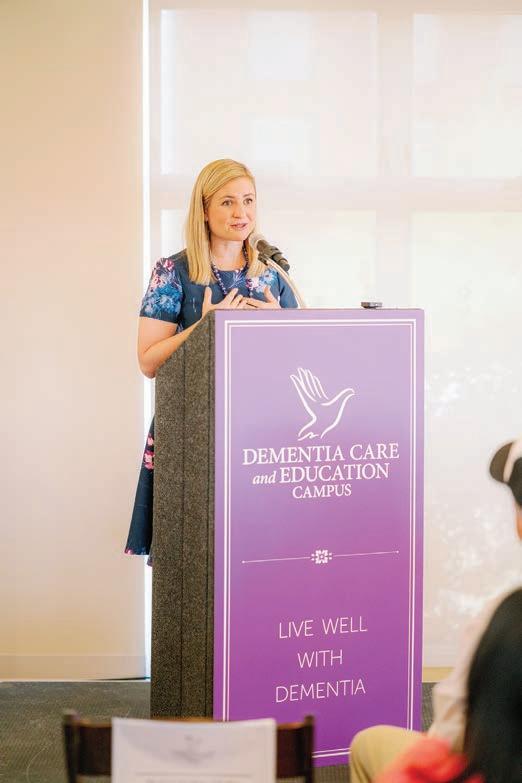
According to the Governor’s Office on Aging, Arizona’s total population is expected to increase about 80% from 2010 to 2050. During this same period, the number of Arizonans age 65 and older is expected to grow by 174%. By 2025, an estimated 200,000 Arizonans will be affected by dementia, a 43% increase from 2018. Alzheimer’s disease is now the fourth-leading cause of death in Arizona and the top-leading cause for women age 65 and older.
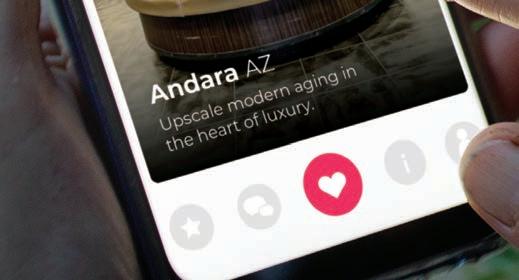
The Dementia Care and Education Campus is open for everyone in the community to utilize its resources. The Community Education Center provides
instructional workshops, professional training classes, support groups, caregiver skills labs, mindfulness sessions for stress reduction and community concerts.
Next to the education center is the Memory Café for people living with dementia and their caregivers to connect with others to socialize. Each Monday from 10-11:15 a.m., the café offers sessions that include engaging activities provided by professional caregivers for those with dementia, while their caregivers can meet others, receive educational information and find support.
The campus is designed in a circle with a dementia-friendly green space in the center for outdoor time, complete with a large grassy area, planters, benches and walkways.
According to the grand opening brochure, the campus has a child center because “Numerous studies show that intergenerational programs involving young children and the elderly have many positive effects on both.”
The preschoolers will interact with the seniors for certain art activities or snack time.
“We all have ties with dementia,” shared Nicole Hilden, preschool director at Prince of Peace Preschool. “My grandmother had it, and Nana lit up whenever my daughter was around. It’s good to know that we can facilitate those experiences.”
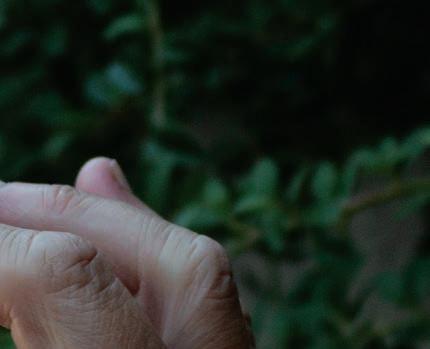
The campus has a 12-person Assisted Living Center with private rooms and a suite available for those requiring more care. “This 13-bed space is the first of its kind,” said registered nurse Bessie Medigovich, campus team leader of the Assisted Living Center and Inpatient Care Home. The center also offers caregivers with dementia training and a community space for residents, along with dining and salon services.

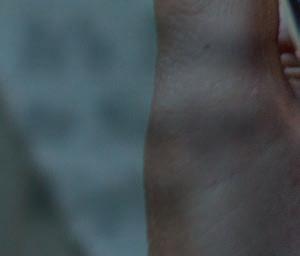



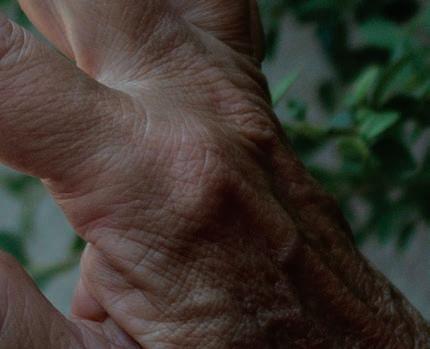

An Adult Day Club for people living with early or mid-stage dementia offers programs in art, music, movement and education to create cognitive engagement. The space has classrooms in addition to an open area with floor-to-ceiling windows looking out onto a patio. On the other side of the patio is the Child Center that Prince of Peace Preschool operates for children ages 2 to 5. At the end of the shared space is a covered playground.
The 10-person Hospice Inpatient Care Home features private rooms and provides short-term, around-the-clock care. “When people need additional support, we can
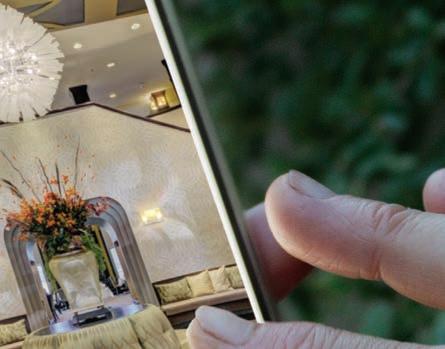
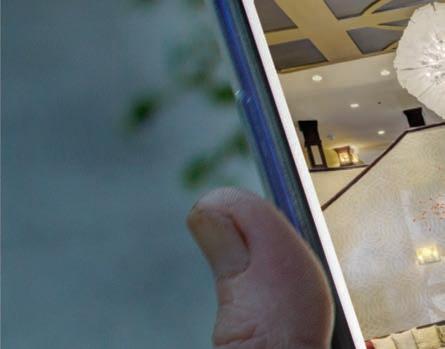
care to Arizona families living with dementia, said, “Hospice of the Valley is so much more than end-of-life care.” They offer free supportive care for dementia, including home visits and consultations to help keep the person at home as long as possible. But if someone needs more, Pierson said, “There’s a home now for those with mild, moderate and advanced dementia. There is nothing like it in the United States.” JN
For more information, visit dementiacampus.org.
 NADINE BUBECK
NADINE BUBECK
Servicing all of Maricopa County, the Phoenix-based Jewish Family and Children’s Service (JFCS) is dedicated to strengthening the community by providing behavioral health, healthcare and social services to all ages and backgrounds.
While the JFCS’s approach to care is based on traditional Jewish values, they don’t only serve Jewish families; they provide quality services to all people to improve our community’s overall well-being, regardless of faith.
According to Jennifer Brauner, the JFCS Center for Senior Enrichment and Creative Aging director, a major focus of the JFCS is catering to senior citizens, providing them with love, assistance, guidance and programs that better enhance and improve their daily lives. By having access to the Center for Senior Enrichment (CSE) programs, our local senior community can tap into resources offering free educational and lifelong learning opportunities.
The CSE offers free virtual and in-person programming to the senior community, allowing participants to grow
and build on skills they currently possess and would like to learn. Additionally, the CSE provides a sense of community support to families who seek social outlets for their parents as well as physical and mental stimulation.
“The Center for Senior Enrichment is a good source for seniors as it gives them an opportunity to learn new skills and continue to strengthen their mind, body and soul in the comfort and convenience of their own home. The program also provides a socialized outlet that is most needed during these isolated times,” said Brauner.
The CSE started its in-person programs in 2008 but has since evolved to offer virtual options as well. The free Zoom classes range from exercise and dance to art, music, history, theatre and more.
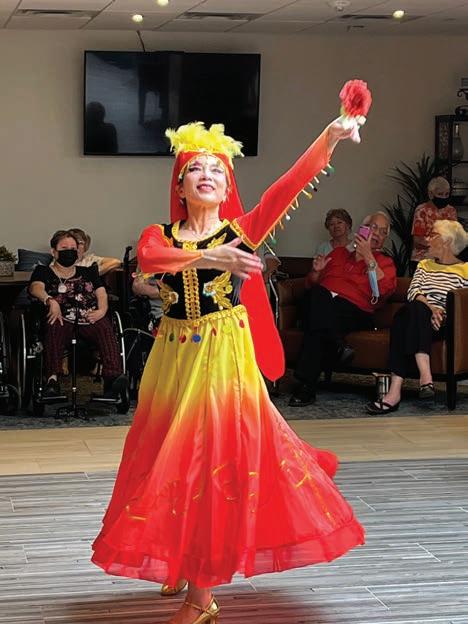
“I so enjoy the senior programs. With the pandemic restricting social activity, these programs are crucial in keeping us elderly folk (especially those who live alone) active, intellectually stimulated and involved with the community,” said participant Rod Fensom. “I especially loved the virtual Paris tour; wonderful
for those of us who don’t travel much anymore.”
To occupy the upcoming summer months, they’re also offering weekly in-person programs at the CSE, located at The Palazzo in Phoenix. Such events are available at no charge and include classes and entertainment like singers, musicians, dance demonstrations and more.
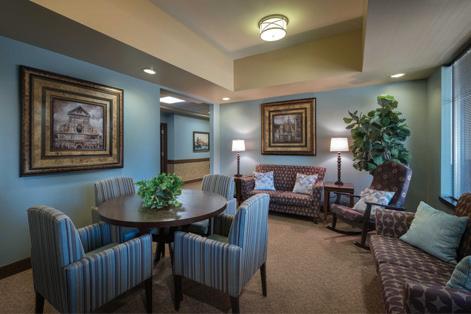
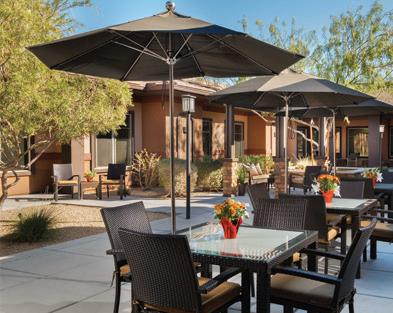
“My children are so grateful for the JFCS classes. Whenever they call to check up on me, they express how happy they are that their mama is doing something that brings her such joy,” said participant Pearl Wolkis. “The programs have become a blessing for me to feel connected to others.”
Since the launch of their virtual senior center in November 2020, they have reached nearly 5,000 seniors throughout Maricopa County. And for those who aren’t quite tech-savvy, they are available to offer computer support for anyone who needs assistance accessing Zoom classes and registration.
Class registration is open year round; classes can run 3-6 months and typically last an hour in length. They are taught
by professors, certified specialists and volunteers who are experts on the topic presented. JN
To learn more about the JFCS Center for Senior Enrichment, contact Jennifer Brauner at 602-3430192, or visit jfcsaz.org/events.
Bubeck is an author and freelance writer living in Scottsdale.

fter dining at a restaurant recently, I was nearly giddy with excitement. I called my dad, immediately sharing my enthusiasm for the food, the abundant outdoor space and especially the service. Days later, when my dad reported back that he had essentially been ignored at the same restaurant, I felt saddened that the disrespect my dad had experienced was likely due to ageism. Ageism occurs when people face stereotypes, prejudice or discrimination because of their age.
My 86-year-old, still past 6-foot-tall, larger-than-life dad was most likely a victim of discrimination based on the stereotype that older adults are unpleasant and difficult to deal with. Dad probably asked the waiter several times to repeat himself because hearing aids are notorious for amplifying background noise. Perhaps that set the tone for the evening. This is all conjecture, but one thing is for certain. If we are lucky, we will have the privilege to grow older. Clearly, we all want to be 86 and dining around
Atown. I believe if we examine how we all contribute in small ways to the negative stereotypes, we can slowly start a cultural shift and elevate the status of our older adults.

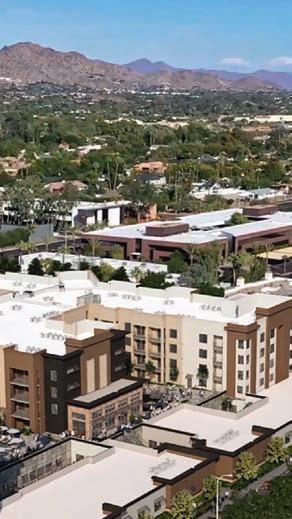
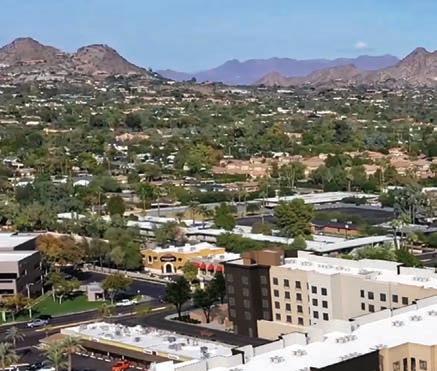
Actor Jamie Lee Curtis has a refreshing take on getting older by asking people to shift their attitudes on the loss of
is over the hill. We perpetuate this selfloathing by sending these cards. Why don’t we repeat out loud more often, “if I knew then what I know now.” Emphasizing the maturity and sense of self that we have developed through our life experiences.
The societal shift starts with individuals
that stuck was advice from a slightly older friend, “The worst thing about getting old is that just about everything hurts and… if it doesn’t hurt, it doesn’t work.”





As a family, we have quoted and laughed about that line for years. There are instances when humor can be a great tool to de-escalate stressful situations, yet repetitive use of negative stereotypes is detrimental. Do our words, attitudes and behaviors paint older adults as weak, feeble, asexual or forgetful? Even in the context of a joke, these subliminal sentiments contribute to the prevalence of ageism.
youth. Curtis stated recently in an interview, “This word ‘anti-aging’ has to be struck. I am pro-aging. I want to age with intelligence, grace, dignity, verve and energy.” This is beautifully stated and is equally inspirational and aspirational.
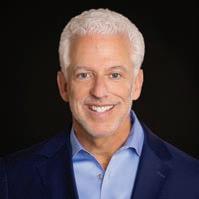
Take a stroll down the greeting card aisle and you will see that older than 30

and families learning together on a micro-level. Explain to our children and grandchildren how the elders in societies around the world are revered for their knowledge.
Many older adults feed into the negativity by using humor as a crutch or defense. We made a birthday video for my dad 30 years ago and the sound bite
Upon thoughtful introspection, I don’t want to send that message to my children and future grandchildren. Birthday message reboot should go something like this, “When your feet hurt and appear misshapen, think about those glorious hikes and peaceful morning dog walks and that now you are much wiser because you realize the importance of great fitting shoes.” JN
"I took a bad fall. The service Alert1 provides is PRICELESS! I would highly recommend your company to everyone.
I feel confident that when I am alone, I am protected by people who care."
-- Rachel, Alert1 Member, 2021
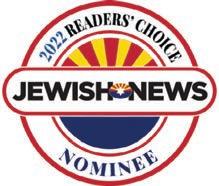
• 1 in 4 seniors falls at least once a year

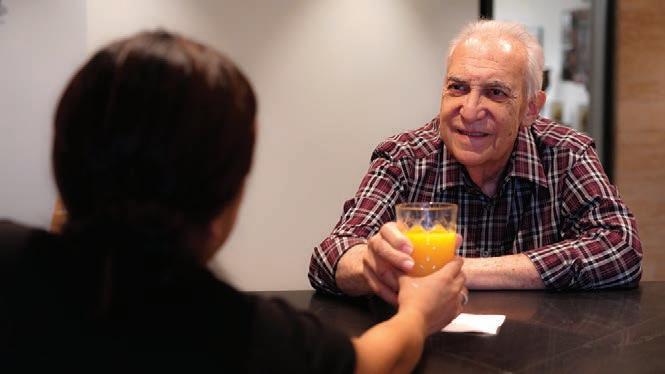
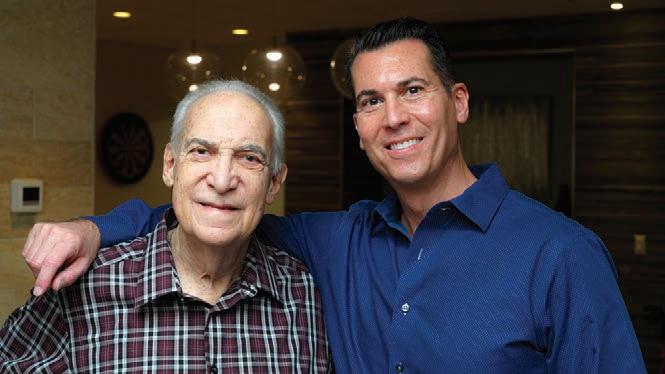
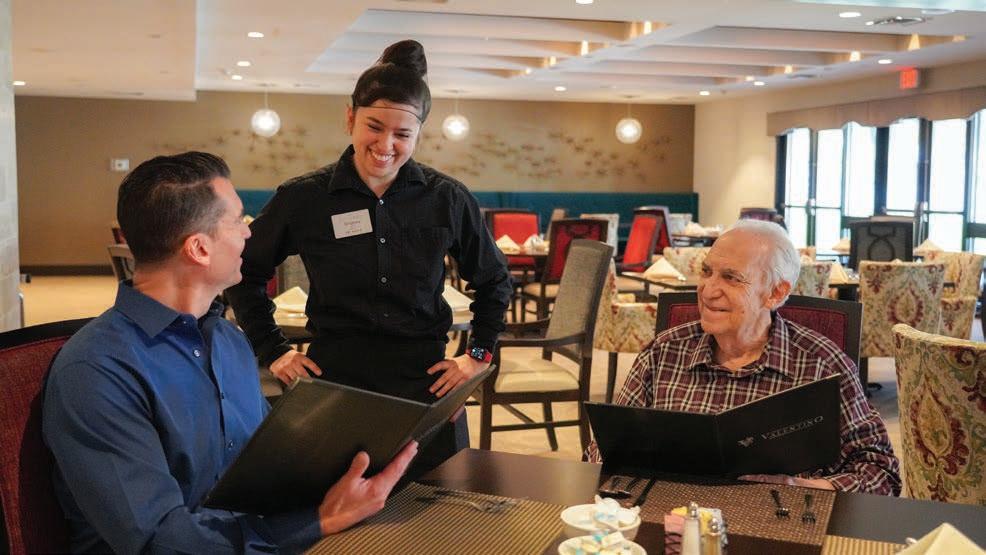
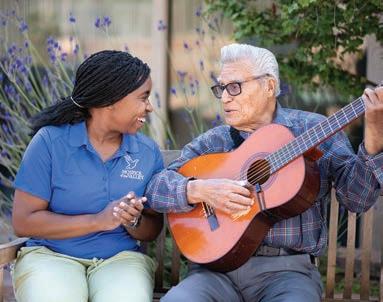
• Falls are the leading cause of injury for senior citizens
• In-Home, On-the-Go, and Fall Detection Medical Alert Systems start at just $19.95 per month!
Affordable Independence. Protection and Peace of Mind. Call 888-520-9113 today or visit Alert-1.com
Medical Alert Systems

SPECIAL OFFER:
12 months for the price of 10! Call for details. Use promo code:

No, Elon Musk is not a Jew. And while his eye-popping $44 billion purchase of Twitter may turn out to be good for him, there are concerns that it won’t be good for the Jews — or for women, LGBTQ people, Muslims or other targeted and vilified minorities.
Musk has said that he wants to strengthen Twitter’s position on “free speech,” that he wants Twitter to serve as the “de facto public town square” and that he wants Twitter to promote global democracy. But Musk’s plans for how he will go about doing each of those things and administer the social media platform are unknown. That is causing mounting concern that Twitter could become a platform for runaway antisemitism and other expressions of hate.
Musk has described himself as a “free speech absolutist.” He advocates for freedom of expression with as few restrictions as possible. If, as a result, he loosens or removes Twitter’s current rules about what may or may not be said on the platform, that could spell trouble for marginalized and vulnerable populations. There is good cause for concern.
Twitter’s status as the “influencer of influencers” and its expansive reach means that hate speech, conspiracy theories and targeted propaganda that first appear as tweets could be picked up, disseminated,
American right, guaranteed by the First Amendment to the U.S. Constitution. But that “free speech” right restricts the power of government to limit the speech of its citizens. It is an entirely
ON SOCIAL MEDIA SITES WHERE THERE ARE NO RULES OR WHERE THERE IS LAX ENFORCEMENT OF PROHIBITIONS AGAINST THINGS LIKE “DOXXING” (GIVING OUT PERSONAL INFORMATION FOR THE PURPOSE OF HARASSMENT) AND POSTING FALSE OR HATEFUL INFORMATION, SOME PRETTY TERRIBLE THINGS HAVE FOLLOWED.
adapted and taken as truth by millions of users at the drop of a simple hashtag.
Much of the uncertainty regarding Musk and Twitter relates to the meaning of the words “free speech.” Most of us think of free speech as an inalienable
Across the globe, developed countries are experiencing decreasing fertility rates and aging populations. People marry later than in earlier decades, delay childbearing until later in life and have fewer children. One result is an aging population with fewer younger people to support the cost of elder-related government services and fewer workers to care for the elderly.
In the United States, fertility rate numbers have been in steady decline. In 1960, our country’s fertility rate was 3.65 births per woman; in 1970 it was 2.57. And now, the U.S. fertility rate has fallen to 1.71 births per woman. (The U.S. is not the lowest — that “honor” goes to South Korea, which has a fertility rate of 0.9 children per woman.)
The distressing U.S. numbers don’t account separately for the problem of infertility — an issue of concern to Ashkenazi Jews and other minorities which experience a lower fertility rate than the general population. That explains why this past week a long list of national Jewish organizations endorsed a bipartisan congressional resolution declaring that “the United States Government has a
responsibility to help examine, create and implement solutions to address and alleviate the problems associated with the disease [of infertility].”
By defining infertility as a disease, Congressional sponsors and their
different concept in the world of social media – where it relates to “platform moderation,” or the rules the social media platform uses to monitor and regulate what and how users may say things on the platform.
On social media sites where there are no rules or where there is lax enforcement of prohibitions against things like “doxxing” (giving out personal information for the purpose of harassment) and posting false or hateful information, some pretty terrible things have followed. And on those sites where anything goes — no matter how hateful, violent or mendacious — the most prolific users tend to be people who want no filters on their speech, whose postings quickly degenerate into a combination of hate speech and wholly inappropriate communication. No one wants Twitter to go there.
Musk has attracted the world’s attention with his purchase of Twitter and his plan to run it privately. We hope that as he rolls out his plan, he chooses to improve moderation standards in order to attract more users rather than default to free speech absolutism, which will encourage hate and abuse and will likely alienate most people.
For now, we hope for the best. And we join an anxious world that waits to see how things play out in Elon Musk’s latest adventure. JN
for fertility treatment.
The nonbinding House resolution (H. Res. 338) was sponsored by Debbie Wasserman Schultz, a Jewish Democrat from Florida, and Dan Crenshaw, a Texas Republican. Wasserman Schultz has
IN THE UNITED STATES, FERTILITY RATE NUMBERS HAVE BEEN IN STEADY DECLINE. IN 1960, OUR COUNTRY’S FERTILITY RATE WAS 3.65 BIRTHS PER WOMAN; IN 1970 IT WAS 2.57. AND NOW, THE U.S. FERTILITY RATE HAS FALLEN TO 1.71 BIRTHS PER WOMAN.
supporters hope to open the door for federally funded research, which could be a game changer for those trying to cope with infertility. Government supported medical research could also lead to programs which will alleviate the backbreaking cost families must now pay
been treated for infertility, making her one of the 12% of women (one in eight) who have received infertility services in their lifetime. It is heartening to see that organizations representing all streams of Judaism have endorsed the resolution, as did Jewish women’s groups, including
Hadassah, which has been lobbying for years to classify infertility as a disease and to raise awareness.
While the number of signatories on the resolution is impressive, too many local members of Congress have not signed on. We urge them to do so. And we encourage our readers to share their interest in the issue with their elected representatives. Such efforts could make a difference in whether government research and assistance will be made available to help address infertility issues experienced by members of our community and beyond. As pointed out in H. Res. 338, “regulatory disparities and lack of access to health care specialists cause inequities in the financial burden carried by people who seek diagnostic testing and treatment for infertility, presenting a barrier to health care and better health outcomes.”
We strongly support the bipartisan effort to ensure the availability of infertility-related medical research and the provision of services to those who need it, and hope that Congress will help get it done. It’s the right thing to do. JN
We are a diverse community. The views expressed in the signed opinion columns and letters to the editor published in the Jewish News are those of the authors. They do not necessarily reflect the views of the officers and boards of the Jewish Community Foundation, Mid-Atlantic Media or the staff of the Jewish News. Letters must respond to content published by the Jewish News and should be a maximum of 200 words. They may be edited for space and clarity. Unsigned letters will not be published. Letters and op-ed submissions should be sent to editor@jewishaz.com.
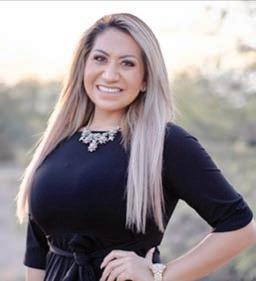
ntisemitic carnivalbarker Mohammed El-Kurd took his routine to another level recently, and frighteningly it was in our own backyard at Arizona State University.
Nearly every day, American Jews wake up to the news of one of their brothers and sisters in faith being viciously assaulted or threatened. Yet, during an April 12 on-campus appearance, El-Kurd was provided a platform by ASU to repeatedly violate the International Holocaust Remembrance Alliance (IHRA)’s definition of antisemitism, that ASU itself adopted in 2020, to spew dangerous antisemitic hatred and vitriol.
El-Kurd referred to pro-Israel students as “apartheid lovers” and threatened to shoot anyone who would dare to heckle him. According to the IHRA definition, the premiere internationally recognized definition of antisemitism, falsely accusing Israel of apartheid and threatening Jews is antisemitic. You don’t need a lawmaker to tell you that threatening dissenters is concerning, especially when they feel cornered by talking points rooted in the
world’s oldest form of hatred.
Even worse, though, is the glaring fact that El-Kurd also ignited the ageold antisemitic trope that Jews control the media. At his recent event at ASU, El-Kurd said, “I wrote an article and then it went on MSNBC, because they [Jews] control the media.” His comment was received with laughs from the audience.
of antisemitic behavior and rhetoric. Referring to Israelis and Jews as “spineless colonizers” who partake in “lynching” and “Kristallnachting” Palestinians and Arabs, El-Kurd has made it clear he cannot stand Jews. These sentiments are beyond frightening.
Based on his prior rhetoric, this situation was as predictable as it was preventable.
IT SHOULDN’T GO UNNOTICED THAT THE MOVEMENT EL-KURD SERVES AS A TRAVELING GUEST LECTURER FOR, THE BOYCOTT, DIVESTMENT, AND SANCTIONS (BDS) MOVEMENT, IS ANTISEMITISM IN ITS PUREST FORM.
For decades, the world’s most notorious antisemites have spewed this conspiracy to promote Jew-hatred. By inviting El-Kurd to speak, ASU paved the way for it to infest our campus at the expense of the Jewish community we are meant to protect.
A quick look through El Kurd’s Twitter account would shock you. This is a man who has established a pattern
El-Kurd should never have been at ASU in the first place. As a member of the House of Representatives of Arizona, I fully celebrate the importance of free speech. However, by permitting the event to occur and paying him $10,000 for his hateful speech goes beyond the requirements of the United States and Arizona Constitutions on freedom of speech.
As an ASU faculty member, an Arizona State Representative and a Jew, I am appalled that this happened on our campus. I reached out to administration before it occurred, expressing concerns and sharing how the Jewish student organizations felt with the rise of antisemitism and Jewish hate, I knew this wouldn’t be good. When speakers who spew hateful misgivings about Israel are welcomed to college campuses, risks for on-campus antisemitism spike. When you hear about people like El-Kurd, it makes one think more critically about this. And, it shouldn’t go unnoticed that the movement El-Kurd serves as a traveling guest lecturer for, the Boycott, Divestment, and Sanctions (BDS) movement, is antisemitism in its purest form.
2022 hasn’t been the best year on record for Jews. With spiking terrorism in places like Colleyville, Texas and Jerusalem, Tel Aviv and Bnei Brak in Israel, Jews across the world are living in fear of the worst. American college campuses should be a haven for Jewish students to focus on
SEE HERNANDEZ, PAGE 11
Barring a miracle, Mariupol, the beleaguered industrial center in eastern Ukraine, may henceforth be known only as the city that bore the brunt of Vladimir Putin’s unprovoked assault on Ukraine’s independence and its people.
But the city also has a rich and often tragic Jewish history, shaped by conflict and the efforts of previous generations to preserve their lives, faith and culture in the face of brutality.
One such story starts at the beginning of the 20th century, not in Ukraine but in Lithuania.
Perched on the western edge of the Russian Empire, the Lithuanian town of Panevezys (pronounced Ponevezh or Ponevich) was home to some 7,000 Jews, roughly half the total population. The town boasted few amenities, but chief among them was the yeshiva established in 1909 by Liba Miriam Gavronskii, widowed daughter of the wealthy tea magnate Kalonymus Wissotsky. Rabbi Yitshak Yaakov Rabinovich (known as Reb Itsele Ponevezher, 1854-1919) was
its first head, or rosh yeshiva. The yeshiva flourished, but it faced an early threat to its existence with the outbreak of World War I. Seeking to undermine the Russian war effort, the Germans directed a Yiddishlanguage proclamation to the Jews of
Latvia, and then once again to Mariupol. Before returning to reestablish itself in independent Lithuania in 1919, the yeshiva would spend the remainder of the war years in Mariupol.
Why Mariupol? The great distance from the front lines certainly factored
MARIUPOL HAS A RICH AND OFTEN TRAGIC JEWISH HISTORY, SHAPED BY CONFLICT AND THE EFFORTS OF PREVIOUS GENERATIONS TO PRESERVE THEIR LIVES, FAITH AND CULTURE IN THE FACE OF BRUTALITY.
the Russian Empire, promising them full emancipation and equal rights once the Romanov dynasty was toppled. Already distrustful of his large Jewish population, the notoriously antisemitic Tsar Nicholas II ordered a brutal expulsion of Jews from the borderlands region to the interior of the Russian Empire.
The Yeshiva of Ponevezh was forced to relocate, first to Ludza in nearby
in the thinking of the rosh yeshiva, but Mariupol had developed a reputation as a haven for Jewish settlement. In 1791, the port city was added to the Pale of Settlement, the region of the Russian Empire designated for Jews. By 1847 just over a hundred Jews had established homes in Mariupol, participating in the Black Sea trade. It became a destination for Jews looking for
economic opportunity and those fleeing the overcrowded regions of Lithuania and Belarus. By the end of the 19th century, the city was home to over 5,000 Jews, constituting 16% of the population; the 1926 census records 7,332 Jews in Mariupol, or 18% of the city.
The expanding, dynamic Jewish community of Mariupol — disturbed only by riots associated with the 1905 revolution — came to an abrupt end with the Nazi invasion. Mariupol’s Jews were rounded up and shot by Einsatzgruppen on a single dark day — Oct. 18, 1941 — as part of the horrific “Holocaust by Bullets.”
As for the Lithuanian yeshiva that was sheltered by Mariupol in World War I, it went on to establish itself as one of the greatest institutions of Talmudic study during the interwar years. In 1939, however, war came to Panevezys again, with both the Soviet Union and Nazi Germany invading Lithuania. Under
In the summer of 2014, I and another rabbinic student traveled more than halfway around the world as part of a Joint Distribution Committee Initiative to officiate at the b’nai mitzvah of over sixty Jewish teens in Novosibirsk, Siberia, who had previously not been given the chance to become bar or bat mitzvah. We thought about what important elements and core teachings of our Jewish canon we would focus on. After all, when I teach Introduction to Judaism, I only begin to scratch the surface of our tradition over months; my colleague and I had less than a week. With personal translators shadowing and communicating for us, we constructed a simple curriculum, transforming this Soviet-era hotel with peeling paint and empty fountains, into a lively sacred space pulsing with the flow of Torah.
We knew we could not teach our students full Hebrew and prayer literacy within a week, so we transliterated the
HERNANDEZ
CONTINUED FROM PAGE 10
their studies and enjoy their college years, not feel threatened.
Students here in Arizona and across the globe shouldn’t have to feel differently because of who they are. As university faculty, we cannot allow radicals, like El-Kurd, to come to our campuses and make our students feel unsafe. American college campuses are intended to serve as incubators for the world’s next generation of leaders, not for hatred. College campuses must work diligently to ensure that individuals, like El-Kurd, don’t weaponize college campuses as a launchpad to attack Jews. Other universities had already canceled his appearance we should have done the same.
Arizona State University is one of the best campuses in America for Jewish students. We must keep it that way. It should go without saying that El-Kurd’s actions illustrate why he never should be allowed near a college campus again.
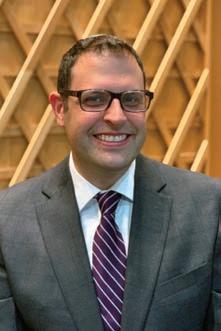
Arizona State University must take swift, immediate actions to ensure the safety of all students, particularly Jewish students, in the wake of these hateful remarks. JN
Rep. Alma Hernandez is a Democratic member of the Arizona House of Representatives for the 3rd district.
most important prayers we wanted them to be able to recite, such as the blessings to take an Aliyah when called before the Torah scroll. We knew we could not provide a new tallit and tefillin for every student, so we made sure every student had a chance to wear ours and feel the connection that comes with the sacred garments. And we knew we could not teach all the Torah, so we shared many stories of our Torah and of our sages, and in depth, we made sure to teach and discuss the three words that Rabbi Akiva famously identified as Clal Gadol BaTorah, the essential principle of the Torah, the words of Leviticus 19:18, V’Ahavta L’Reyakha KaMokha, Love Your Neighbor as Yourself.
V’Ahavta – ‘And You Shall Love.’ How remarkable that God commands us to love! Love, often understood as a characteristic of relationship passively discovered, instead describes active deepening of relationship and the choice to judge another favorably. In contemporary culture, people ‘fall’ in love, but in our Jewish tradition, we rise in love, we grow in love, we enrich one another through love. In our society, people too often try to change their partners and peers, but in our
ABRAMSON
CONTINUED FROM PAGE 10
tradition, we’re asked to change ourselves. In our culture, people are primed to judge beauty based on the external, but our tradition asks us to recognize the beauty on the inside. And in our secular world, people too often put others down to lift themselves up, but in the Jewish tradition, we are asked to lift others up, recognizing that that, in turn, lifts us as well.
L’Reyakha – ‘Your Neighbor.’ The Torah never commands love of a parent or a child, but does obligate us to love God, the stranger and in this verse, our neighbors. A neighbor is both close and distant, proximate yet of a distinct and different household. Regardless of our natural inclinations towards exclusion and differentiation between us and those beyond our boundaries, God asks us to open our hearts to our neighbors, recognizing the divine image and holy potential within them.
KaMokha – ’As Yourself.’ The Torah here expands on our obligation to love. Not only must we actively show love for God, the stranger, and the neighbor, but we too, must love ourselves. For some, this is an easy step, but for the many who struggle with self-love, the Torah reminds us here that we too are deserving. The whole idea of Shabbat
as a day of rest reflects the human need for individual nourishment. We require self-sustaining love, healing, exploration and care. When we teach that humanity is created in the divine image, it means that both your neighbor and yourself contain beloved holiness.
As we explored these teachings, I recall the widening eyes of my Siberian students and the way in which this text helped them. So many had experienced the sting of antisemitism without previously knowing the loving teachings of Judaism and with our brief learning together of one text in the course of a short weeklong bar/bat mitzvah camp, found a tradition that articulates that our God accepts us as we are and demands that we accept ourselves with love. JN
the leadership of Rabbi Yosef Shlomo Kahaneman (1888-1969), the yeshiva continued to function under Communist rule despite the fact that he was trapped outside the country, with students moving from one synagogue to another until the Nazis took over in June 1941 and murdered them all, together with most of Rabbi Kahaneman’s family.
In 1944, Rabbi Kahaneman reestablished the Ponevezh Yeshiva
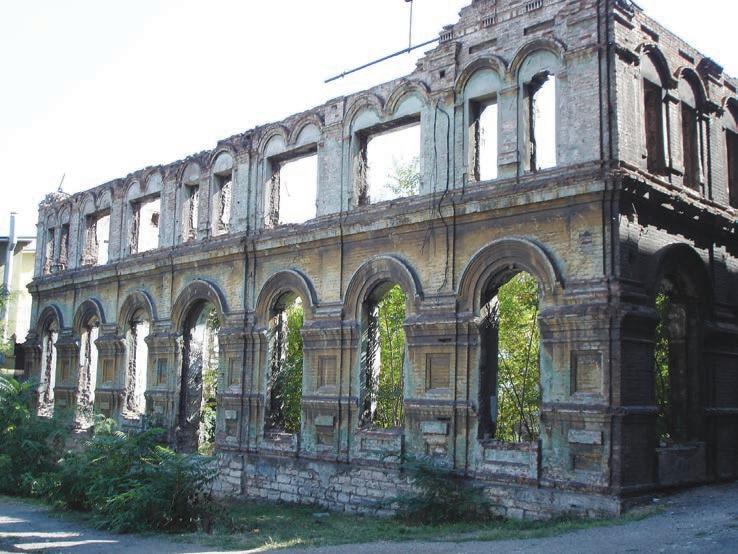
once again — this time in B’nai Brak, in what would become Israel — with seven students. Amazingly, it has grown to reclaim its reputation among the most prominent institutions of higher Talmudic education in the world; at 98, its current rosh yeshiva, Rabbi Gershon Edelstein, is regarded by many as the spiritual leader of the “Lithuanian” non-Hasidic stream of haredi Orthodoxy.
After the Holocaust, Jews slowly
trickled back into Mariupol, which in 1948 was renamed Zhdanov by the Soviets after the sudden death of Andrei Zhdanov (1896-1948), long rumored to be Joseph Stalin’s presumed successor (his son also married the Soviet dictator’s daughter). By 1959 over 2,000 Jews lived in the city, but only constituted about 1% of the total population.
With the collapse of the Soviet Union, the city reclaimed its original name of Mariupol in 1989, and became part of newly independent Ukraine shortly thereafter. The heroic presence of the Chabad-Lubavitch movement in Mariupol, as in many formerly Soviet communities, supported the tiny Jewish population that remained after most of them emigrated to Israel in Operation Exodus — when Jews escaped the crumbling Soviet Union more than three decades ago — and continued to serve even through the Russian invasions of 2014 and 2018. Now, in the midst of the invasion of 2022, Chabad and others are working to evacuate as many of them as possible. JN
The views and opinions expressed in this article are those of the author and do not necessarily reflect the views of JTA or its parent company, 70 Faces Media.
FRIDAY-SUNDAY MAY 6-8
The Maricopa County Home & Garden Show:

10 a.m.-5 p.m. Join the largest home show in the Southwest featuring hundreds of home improvement inspirations from local businesses, artisans and companies all in one location at WestWorld of Scottsdale, 16601 N. Pima Rd., Scottsdale. Mother’s Day activities included with admission. For more information, visit maricopacountyhomeshows.com.
SATURDAY, MAY 7
Mama’s Makers Market 2022: 9 a.m.-3 p.m. Join Local Trade to celebrate everything local and mom. The event features more than 100 carefully curated local artisans including art, jewelry, furniture, decor, clothing, health & beauty, food and more at 2021 E. Camelback Rd., Phoenix. For more information, visit localtradeaz.com.
MONDAY, MAY 9
J Movie Club: 7 p.m. Come to the Valley of the Sun Jewish Community Center, 12701 N. Scottsdale Rd., Scottsdale to watch gripping and powerful films all with a Jewish theme. This month’s film: `Welcome to Kutsher’s: The Last Catskill’s Resort.’ Following each screening, stay for a discussion about the film. Snacks will be served. For more information, visit vosjcc.org.
WEDNESDAY, MAY 11
Live Music by the Pool: 5:30-7 p.m.,
Bring your friends and family to enjoy dinner by the pool with live entertainment at the Valley of the Sun Jewish Community Center, 12701 N. Scottsdale Rd., Scottsdale. Visit the membership desk or call Megan Montgomery at 480-481-1756 to reserve a spot.
THURSDAY, MAY 12
Jesus of Nazareth – A Jewish Reading: 10 a.m. Join Temple Beth Shalom of the West Valley for a class led by Rabbi Dana Even Kaplan exploring a historical view of Jesus and the early Jesus movement, Judaism in the 1st Century CE and the roots of the schism between Judaism and Christianity. Class runs May 12, 19, 26 and June 2. For more information, email templebethshalom@gmail.com or call 623-977-3240.
WEDNESDAY, MAY 18
The J’s Fore the Kids Golf Tournament:
7:15 a.m.-3 p.m., Golf tournament held at the TPC Scottsdale Champions Course, 8243 E. Bell Rd., Scottsdale where a portion of the proceeds will support the SMILE Campaign, which provides financial scholarships for preschool, summer camp and membership at The Valley of the Sun Jewish Community Center. For more information, visit vosjcc.org.
THURSDAYS
Storytime at Modern Milk: 9:30 a.m. Bring your babies, toddlers and preschoolers to our weekly all ages in-person storytime at Modern Milk, 3802 N. Scottsdale Rd, #163, Scottsdale. We will integrate favorite children’s books and songs while giving parents new ideas for play. Cost: $5. For more information and to register, visit modernmilk.com/after-baby.
SUNDAYS
BAGELS: 9-11 a.m. Join the Valley of the Sun Jewish Community Center, 12701 N. Scottsdale
Rd., Scottsdale, for Bagels And Gabbing Every Last Sunday of the month in-person. Grab a bagel and a cup of coffee and enjoy some time with your friends and make new ones. You must register to attend. Bagels and coffee will be provided. Cost: Free for members, $5 for guests. For more information and to register, visit apm. activecommunities.com/valleyofthesunjcc/ Activity_Search/1787.
MONDAYS
Mahjong: 10 a.m.-12:30 p.m. Join the East Valley Jewish Community Center in-person for mahjong. This program is intended for players with prior experience and for those who have received the COVID-19 vaccination. Masks will be required. Cost: Free. For more information and to register, visit evjcc.org/mahjong. For further questions, call the EVJCC at 480-897-0588. The EVJCC is located at 908 N. Alma School Rd., Chandler.
TUESDAY, MAY 10
Tuesday at the J: 10-11 a.m., Join the East Valley Jewish Community Center for Tuesdays at the J free virtual presentation featuring ‘The Art of the Monuments Men’ with Phoenix Art Museum docent Doreen Weiser. For more informatinon, visit evjcc.org/tuesdays.
THURSDAY, MAY 12
Onlline Book Discussion: 2 p.m., Join the Arizona Jewish Historical Society for a book discussion led by Rabbi Jeffrey Schesnol. This month’s book selection is “Secular Jewish Culture” by Yaakov Malkin. For more information, visit azjhs.org/book-discussion-group.
MONDAYS
Ethics of Our Fathers: 7 p.m. Learn with Rabbi Zalman Levertov online. Tune in at: bit. ly/2Y0wdgv. Cost: Free. For more information, visit chabadaz.com.
Quotable Quotes by our Sages: 7 p.m. Learn with Rabbi Shlomy Levertov online. Tune in at: JewishParadiseValley.com/class. Cost: Free. For more information, visit chabadaz.com.
Partners in Torah: 7:30 p.m. Join a growing group of inspired learners with Project Inspire. Cost: Free. Tune in at: us04web.zoom. us/j/3940479736#success, password is 613. For more information, email Robin Meyerson at robin@projectinspireaz.com.
Learning to Trust in God: 7:30 p.m. Learn with Rabbi Yossi Friedman online. Tune in at: ChabadAZ.com/LiveClass. Cost: Free. For more information, visit chabadaz.com.
Torah & Tea: 7:30 p.m. Learn with Rabbi Yossie Shemtov online. Cost: Free. For more information, visit Facebook.com/ChabadTucson.
TUESDAYS
Let’s Knit: 1:30-3:30 p.m. Share the pleasure of knitting, crocheting, etc. and help others with a project or pattern. Can’t knit? We can teach you! Every level welcome. We will be sitting outside at the Ina Levine Jewish Community Campus and social distancing. Our last meeting before August will be Tuesday, May 11. Cost: Free. For more information, email Nicole Garber at nicoleg@ mpjcc.org.
Keep Calm and Play Mahjong: 6:30-8:30 p.m. Play mahjong from home with myjongg.net. Cost: Free. To join a table, email Nicole at nicoleg@vosjcc.org.
Maintaining an Upbeat Attitude: 7 p.m. A class exclusively for people in their 20s and 30s, learn how Jewish Mysticism can help with your attitude with Rabbi Shlomy Levertov online. Cost: Free. Tune in at: JewishParadiseValley.com/YJPclass. For more information, visit chabadaz.com.
WEDNESDAYS
History of the Jews: 11:00 a.m. Learn the Jewish journey from Genesis to Moshiach online with Rabbi Ephraim Zimmerman. Cost: Free. Tune in here: zoom.us/j/736434666. For more information, visit chabadaz.com.
Torah Study with Temple Beth Shalom of the West Valley: 11 a.m.-noon. TBS of the West Valley’s weekly virtual study group explores that week’s portion and studies different perspectives and debates the merits of various arguments. Intended for adults, Torah study is open to students of all levels. The goal is to achieve an understanding of what the text is and what it can teach us in the contemporary world. For more information, contact the TBS office at (623) 977-3240.
Happiness Hour: 11:30 a.m. An online class taught by Rabbi Pinchas Allouche that delves into texts and references culled from our traditions to address a relevant topic and draw uplifting life lessons from it. For more information or to join, visit cbtvirtualworld.com.
Torah Study with Chabad: Noon. Take a weekly journey to the soul of Torah online with Rabbi Yossi Levertov. Cost: Free. For more information, visit chabadaz.com.
Lunch & Learn: 12:15 PM. Grab some food and learn online with Rabbi Yehuda Ceitlin. Cost: Free. Tune in on Zoom by emailing info@ChabadTucson.com. For more information, visit ChabadTucson.com.
The Thirteen Petalled Rose: 1 p.m. An online Kabbalah class that studies “The Thirteen Petalled Rose” by Rabbi Adin Even-Israel Steinsaltz, focusing on the many foundational and transformational concepts of Kaballah and Jewish Mysticism and applying them to everyday life. For more information or to join, visit cbtvirtualworld.com.
Knit a Mitzvah: 1-30 p.m. On the second and fourth Wednesdays of the month, check in with fellow knitters who are making items to donate as part of this Brandeis National Committee Phoenix chapter study group. For more information, contact Ronee Siegel at ronees@aol.com.
JACS: 7:30-8:30 p.m. Virtual support group for Jewish alcoholics, addicts and their friends and family on the first and third Wednesdays of the month. Cost: Free. For more information, email jacsarizona@gmail.com or call 602-692-1004.
Words & Whiskey: 8:30 p.m. Join a free weekly, virtual learning session for men. To RSVP, email rmollenaz@gmail.com or call/text 310-709-3901.
THURSDAYS
Ladies Torah & Tea: 10:30 a.m. Learn about the women of the Torah with Mrs. Leah Levertov online. Cost: Free. Tune in at: ourjewishcenter. com/virtual. For more information, visit chabadaz.com.
Talmud - Maakos: 11 a.m. Learn with Rabbi Shlomy Levertov. Cost: Free. Tune in at: JewishParadiseValley.com/YJPclass. For more information, visit chabadaz.com.
Mindfulness Gatherings: Noon. Hosted by Hospice of the Valley via Zoom. Cost: Free. To join by phone dial 1-253-215-8782, meeting ID 486 920 2119#, to get the Zoom link or for further questions contact Gill Hamilton at ghamilton@hov.org or 602-748-3692.
The Science of Everything: 4 p.m. Explore the most fundamental work of Chassidut: the Tanya, with Rabbi Boruch. Cost: Free. Tune in at: zoom.us/j/736434666. For more information, visit chabadaz.com.
Teen Discussions: 7-8:30 p.m. Learn with Rabbi Tzvi Rimler online, Cost: Free. Tune in at cteen.clickmeeting.com/east-valley. For more information, visit chabadaz.com.
SATURDAYS
Saturday Mindfulness Gatherings: 9:30 a.m. Hosted by Hospice of the Valley. To join by phone dial 1-253-215-8782, meeting ID 486 920 2119#.
To get the Zoom link or for more information, contact Gill Hamilton at ghamilton@hov.org or 602-748-3692.
Book Discussion: 1:30-2:30 p.m. Join Or Adam Congregation for Humanistic Judaism on the third Saturday of every month for a virtual book discussion. For more information and to register, contact oradaminfo@gmail.com.
SUNDAYS
Soul Study: 7:15 a.m. An online class exploring the secrets of the Tanya and Jewish mysticism, taught by Rabbi Pinchas Allouche. Cost: Free.
Chassidus Class: 9 a.m. Learn about the Chasidic movement with Rabbi Yossi Friedman. Cost: Free. Tune in using this link: ChabadAZ.com/LiveClass. For more information, visit chabadaz.com.
Jewish War Veterans Post 210: 10 a.m. Any active duty service member or veteran is welcome to join monthly meetings, now virtual, every third Sunday, Cost: Free. For more information, email Michael Chambers at c365michael@yahoo.com.
Anxiety in the Modern World: 6 p.m. Learn the secrets of the Torah for living stress-free in the current environment in a virtual class with Rabbi Boruch, with Chabad of Oro Valley. Cost: Free. Tune in using this link: zoom.us/j/736434666. For more information, visit chabadaz.com. JN
Larry Moffitt to receive JFL’s Harry Adler Memorial Leadership Award Arizona Jewish Free Loan (JFL) announced that Larry Moffitt will be presented with the Harry Adler Memorial Leadership Award during JFL’s Gratitude Gathering on May 15, 2022.
The Harry Adler Memorial Leadership Award is given to present or past board members who have followed Adler’s lead by going above and beyond their role to set an example for other volunteers and ensure that JFL will be here for future generations.
Moffitt exemplified these ideals in both his professional life as a CPA and in his service to JFL. He served as a board member, board president and accounting advisor.
“I was humbled when I was notified that I was the recipient of the Harry Adler Memorial Leadership Award,” said Moffitt. “I know the significance of the award and the amount of time and deliberation that the board spends in selecting the recipient. It is even more meaningful to me since it was Harry Adler who encouraged me to get involved with Jewish Free Loan. How right he was; it has been an extremely rewarding journey.”
The Gratitude Gathering will take place as a hybrid event and include an update on JFL’s impact, the presentation of the Harry Adler Memorial Leadership Award and installation of the new board of directors. To register, visit bit.ly/JFLGratitude2022.
Israeli college president visits Phoenix Jewish community
When Jerusalem College of Technology (JCT) President Prof. Chaim visited Phoenix in March, he reconnected with a Jewish community he has known for nearly 50 years.

“I have family in Phoenix and I first visited there in 1972,” Sukenik said. “Back then, it was a much smaller community centered around fewer Jewish institutions such as synagogues and schools. Today, the growth in Phoenix and also in Scottsdale is most impressive. There are a lot of people in the region who are very Jewishly committed, and the sense of excitement surrounding the community is palpable.”
JCT’s International Program in English offers students who are not fluent in Hebrew a viable opportunity to live and study Torah in Israel while pursuing a prestigious academic degree in computer sciences or business administration. The program’s comprehensive double curriculum combines high-level academic studies, enriching Jewish studies and practical professional training.
While in Phoenix, Sukenik held meetings at the Yeshiva High School of Arizona and recorded two podcasts with Rabbi Dr. Shmuly Yanklowitz, president and dean of Valley Beit Midrash.
Regarding the value proposition that JCT can offer international students, Sukenik said, “We offer the opportunity, particularly for students who’ve participated in gap year programs, to stay in Jerusalem and complete a full college degree in English. The religiously sensitive environment in which that degree is completed, and the fact that the degree
is certified by Israel’s Council for Higher Education and is respected by employers both in Israel and abroad, are major pluses.”




For more information, visit jct.ac.il/ international.
At its Annual Spring Event, the BNC Phoenix Chapter installed Ellen Widoff and Leith Baletin as co-presidents to lead the 1,000plus member organization, among the largest chapter in the country. Baletin has become the organization’s first male president and today, 25% of the Phoenix membership is male.
The BNC Phoenix board of directors’ term will coincide with the 75th anniversary of Brandeis University; BNC Phoenix began as a founding chapter in 1950. Today, it is acknowledged as the flagship chapter in the BNC community due to regular awards of excellence and its signature program, the Book and Author Event, established in 1991. This event hosted more than 950 participants before the pandemic.
While most of the members are not Brandeis graduates, membership provides an opportunity to support the only Jewishfounded, non-sectarian institution of higher learning in the United States, a premier neurodegenerative disease research campus and to foster an impressive number of alumni who have positively changed our world in a multitude of ways — including involvement in the COVID -19 vaccine.
For more information, visit brandeisphoenix.org.
The Phoenix Theatre Company continues its longstanding commitment to the developing of new works, playwrights and performers with the 24th Festival of New American Theatre held May 6-8 and May 13-15, 2022. The Festival will feature readings of two new musicals and one play, as well as the Composer Lyricist Cabaret, Choreography Lab and First Draft Series.
“At The Phoenix Theatre Company, we pride ourselves on being a conduit for new stories, new voices and new contributions to America’s theatre canon,” said Michael Barnard, producing artistic director. “We know the value of the creative process and the importance of providing a space for new artists of all kinds to see their work come alive on stage.”
One of the New American Theatre readings in development includes “A Beautiful Place.” This new musical celebrates the life of artist Friedl Dicker-Brandeis, who was deported to the Theresienstadt concentration camp in 1942. There, Friedl secretly taught classes to hundreds of children, giving them the ability to escape the world around them by using their imaginations and the remarkable power of art. This musical can be seen onstage May 6 at 7 p.m. and May 7 at 3 p.m.
For more information or to get tickets, visit phoenixtheatre.com. JN

The winners are chosen by popular vote, so let your friends know it’s time to cast their ballot. As a business, share with your audience to help you win the title of “Best” in your category!
Jesse Alexander Glassman will become a bar mitzvah on May 28, 2022 at
He is the son of Sammy GlassmanUtsunomiya of Phoenix and David Glassman of Phoenix; and stepson of Kyu
Grandparents are Marlys and Larry Lazarus of Paradise Valley and Marsha and Daniel Glassman of Phoenix.
For his mitzvah project, Jesse volunteers with various organizations including Special Olympics, e JoyBus Diner and
A student at Massanutten Military Academy, Jesse loves all things athletic including soccer and basketball. He especially loves watching and getting signatures from the Phoenix Suns! He also enjoys playing video games and spending time with friends and family.
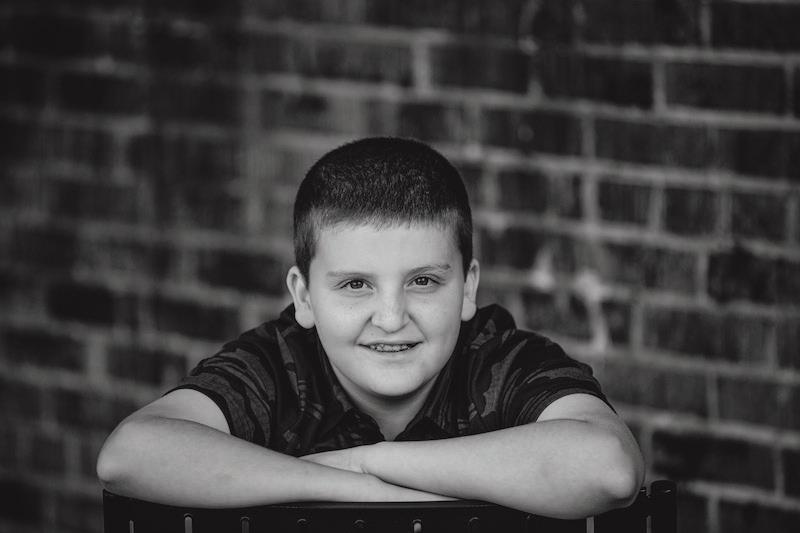
Emery Charlotte Kutz will become a bat mitzvah on May 14, 2022 at Congregation
She is the daughter of Elana and Larry Kutz of Scottsdale.
Grandparents are the late Joni Cohen and Jesse Cohen of Phoenix; Karen Lloyd of Philadelphia, Pa.; and Ron and Bridget Kutz of Columbus, N.J.
For her mitzvah project, Emery organized the rst local 5K run for Phoenix’s celiac and gluten-free community. Emery was the sixth-highest fundraiser in the country, raising more than $5,600 for celiac disease research.
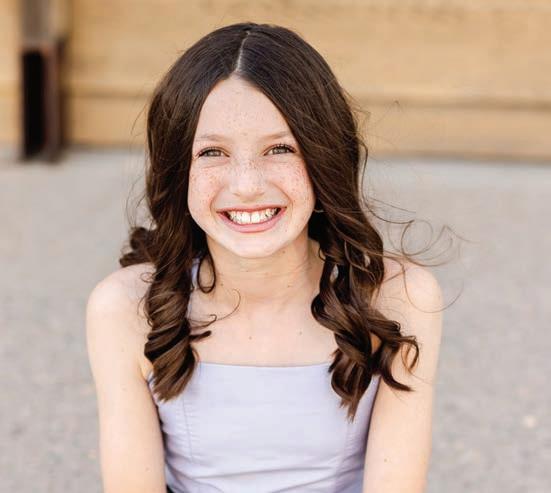
A student at Cocopah Middle School, Emery enjoys running, volleyball,
Bernice “Bunny” Joan Cohen Rabinowitz of Peoria passed away on April 18, 2022, at the age of 91. She was a beloved and loving mother, grandmother, great-grandmother, sister, aunt, cousin and friend.
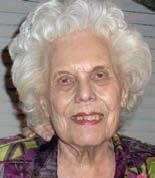
Bernice was born Jan. 14, 1931 in Roxbury, Mass. to Emma and Morris Cohen. She graduated from Boston City Teachers College and taught in several states.
Bunny was a member of Temple Beth Shalom in Sun City and she previously was a member of Congregation Beth Israel in Phoenix. She was active with B’nai B’rith Women and Jewish Women’s International for many years.
Bunny was preceded in death by her husband, Dr. Lewis Rabinowitz. She is survived by her daughter, Lori Baker (Charles); sons Glenn Rabinowitz (Laura) and Gary Rabinowitz; granddaughters Jennifer Marshall (Josh) and Julie Shanahan (Andy); great-grandsons Joseph Marshall and Jackson Shanahan, great-granddaughter, Emma Marshall; brother, Paul Coran; nephews Philip Coran and Steven Coran; many cousins and “adopted” daughter, Lori’s best friend, Annamarie Ricci.
A memorial will be held at 1 p.m. Sunday, May 15, at Temple Beth Shalom in Sun City. In lieu of flowers, Bunny’s family would appreciate donations made in her memory to Hospice of the Valley.
Madeline Dolgin and Mathew Sherman were married at The Icehouse in Phoenix on March 5, 2022.
Parents of the bride are Holly and Ken Dolgin of Scottsdale. e groom’s parents are Randi and Alan Jablin of Scottsdale; Lisa and Dave Sherman of Phoenix. ey spent their honeymoon in Sedona and on a cruise to Mexico.
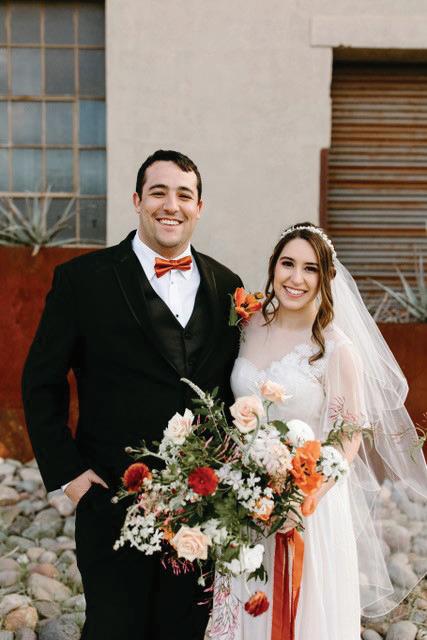
Dr. Warren Dennis Levine of Scottsdale died April 21, 2022. He was 83. He was born in Brooklyn, N.Y. and served in the National Guard. Warren is survived by his wife, Judy; sons Jonathan, Matthew and Andrew; and six grandchildren.
Services were held at Mt. Sinai Cemetery on April 24 and o ciated by Rabbi Andy Green.
Donations in his memory can be made to Hospice of the Valley and Brandeis National Committee.
SHARE YOUR ENGAGEMENT, WEDDING, BIRTH, BAR/BAT-MITZVAH ANNOUNCEMENT AND ANY OTHER SIMCHA ON BOTH JEWISHAZ.COM AND THE WEEKLY JEWISH NEWS ... FOR FREE JEWISHAZ.COM


Willmeng Construction, Inc. has F/T Construction Estimator position in Phoenix, AZ. Duties: Review prjct plans, reqmnts, specs with precon & biz dvlpmnt sta re work scope; Coord bid/ proposal procss with owner, archtct, engnr, contrctrs & subcontrctrs re bid asstnce, design asstnce, value enginrng studies, constrctbilty review, & schedule analysis; Perform material qty takeo calcs to determine pricing; Calclate labor & equip costs. Requires: BS in Constrctn Mgmt, Civil Eng, or rltd + 2 yrs exp. Bkgrd check. Email resume to careers@willmeng.com, Incl Job Code WCLP-CE.

Candy Arthur passed away suddenly and peacefully with her family at her side after complications from surgery on March 23, 2022.
Candy was born on January 23, 1945, to Rose and George Greenberg. She grew up in southwest Philadelphia where she made lifelong friends, several of whom also moved to Phoenix.
Candy graduated from Temple University, receiving a bachelor’s degree in teaching and married Joel Arthur in 1966. Candy continued to teach, helping to put Joel through dental school. In 1971, just as Joel finished his dental education, their son Chad was born. They then started a new life with a move to Phoenix. This was a bold move for Candy, she had no family or friends in Phoenix and left loved ones behind. In a short time, she developed a wide circle of friends with whom she continued relationships throughout her life. In 1975, their daughter Mandy was born. Candy worked lovingly, raising their family while supporting Joel in his growing practice.
Candy was unselfish with her time and was truly interested and concerned with the details in the lives of those she cared for. Her home was her castle and she was the Queen, quite often, you would hear her whistle in the kitchen as she prepared a meal for her family. Dinner with everyone at the table was one of the most joyous times for her. She cherished her children and grandchildren and always strived to make them feel special and understand the true meaning of love.
Though small in stature, her impact to all she touched was immense. With a wonderful smile, infectious laugh and effervescent personality, she would light up a room as soon as she entered. Of course, Joel considered her his best audience.
Candy enjoyed crossword puzzles, the jumble, Sudoku and Jeopardy and treasured playing mahjong with her group of friends for over 40 years. More recently, she played canasta with a wonderful group of women. Over the years, she also supported many organizations in the greater Phoenix area.
She leaves behind Joel, her great love, constant partner and best friend, as well as her children Chad (Jill) Arthur and Mandy (James) Daitch, who lost a doting, devoted and loving mother and her grandchildren Zoe and Hudson Arthur, Zachary and Samantha Daitch, who lost their Mimi. She loved them “to the moon and back.”
As Candy would characteristically and unselfishly reply to “I love you,” with “I love you more!”
You will forever be in our thoughts and hearts.
Donations in her memory can be made to Congregation Beth Israel of Scottsdale, Valley of the Sun Jewish Community Center and The Ryan House.
Rhea Joyce Shifrin Goot passed away Sept. 12, 2021 in Laguna Woods, Calif.
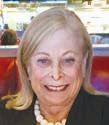
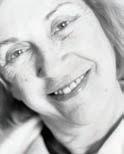
Born in Chicago, Ill. on Oct. 26, 1936, Rhea attended South Shore High School and the University of Illinois at Navy Pier. She raised her children in Chicago, Ill., Phoenix, Ariz. and San Diego, Calif.
She completed her undergraduate degree at Arizona State University, obtained her Master’s Degree in Social Work at San Diego State University and worked for Child Protective Services and the U.S. Navy in San Diego before retiring to Laguna Woods, Calif.
Rhea was a unique person — beautiful, intelligent and feisty. She loved learning, traveling, dancing, laughing and being surrounded by family and friends. She is survived by her daughters Marcy, Julie and Caryn; sister Naomi; son-in-law Jorge; and granddaughter, Noa. She is missed deeply by all who knew her.
Jeannette Elizabeth Kanter was born in London, England, on April 5, 1933. She died at her home in Phoenix, Ariz. on March 13, 2022, surrounded by family.
Vivacious and energetic, she was ahead of her time as a psychiatric social worker, Rebbitzen, exquisite cook, disability rights advocate, hostess and avid tennis player.
While working in college as secretary to the chancellor of the Jewish Theological Seminary, Jeannette met then-rabbinical student Shamai Kanter. They married and raised their three children while Shamai held pulpits in Toronto, Canada; Sharon, Mass.; and Rochester, N.Y. Jeannette preached a healthy lifestyle and a commitment to Judaism as a prescription for living a full and happy life, recognizing also the importance mental health plays in our wellbeing.
In her mid-30s, Jeannette suffered an unexpected and almost complete loss of hearing. This burden set her on a path to learning sign language, becoming an advocate for the hearing impaired and, decades later, benefitting from cochlear implants.
Jeannette had a wonderful sense of humor, a quality she shared with her friends and fellow pickleball players at Sagewood, her home for the last five years. She was also a beloved member of The New Shul community, first as a visitor and then when she made it her full-time spiritual home in Arizona. She was predeceased by Rabbi Shamai Kanter after 62 years of marriage. She is survived by her sister, Greta; her children, Raphael (Cindy), Elana (Michael), Ethan (Sue); nine grandchildren and many nieces and nephews.
Selma Freeman Shapiro, 97, passed away peacefully March 31, 2022.
Born in Bronx, N.Y. as the youngest of four girls to Herschel and Clara Freeman, she moved with her husband Lenny in the early 1950s, first to El Centro, Calif., then to Phoenix in 1957. She lived in the same home in north Phoenix with Lenny until 2012.
Selma learned to be fiercely independent growing up on the streets of Brooklyn and as the youngest of four girls. She ranked second in her class at Samuel Tilden High School in Brooklyn, where she was a member of the National Honor Society. She also attended Brooklyn College until World War II intervened and she took a job to support the war effort.
Selma was married to Lenny for over 60 years until his passing in 2010. She was a legal secretary in Phoenix and Scottsdale, working well into her 80s. She was an avid card player and excelled at pan and bridge, frequently winning tournaments in both. She was a longtime member of Congregation Beth Israel and a supporter of the arts, including the Phoenix Symphony, Phoenix Art Museum, Heard Museum and the Desert Botanical Garden.
Selma is survived by her sons Rick (Nancy) of Dunwoody, Ga., and Neil (Diane) of Phoenix, as well as four grandchildren Lori, Jeff, Danny and Aaron. The family wishes to express their gratitude to the administration and staff of the La Siena senior living community for making Selma’s final years warm and comfortable.
Funeral services were held April 4, 2022 at Beth Israel Cemetery, Phoenix. Donations in Selma’s name can be made to Congregation Beth Israel or the Phoenix Symphony.
Robin Henry was born April 12, 1942 in Cape Town, South Africa. He died April 13, 2022 in Phoenix.
Robin was a fruit farmer in Piketberg, South Africa. In 1987, the Henry family immigrated to Phoenix, where he built a successful landscaping, irrigation and property management company. His dedication to clients was rewarded by their loyalty. A man of integrity, he was held in highest esteem for his expertise and experience in business.
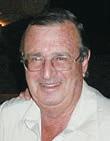
He is survived by his wife, Jennifer; son, Allan (Jen); daughters Laura and Gail (Kelly); sister, Joan Treger of Johannesburg, South Africa; brother, Bernard of Vancouver, Canada; and grandsons Cooper, Max, Banks and Kayson.
His family meant the world to him and he thought of everyone before himself. Robin’s presence always brightened a room with his stories and humor. His love of people and outgoing nature endeared him to all who knew him.
Robin was buried at Mt. Sinai Cemetery on April 14, 2022.
Our dear brother, Brian David Mony passed away on March 21, 2022. He was 57.
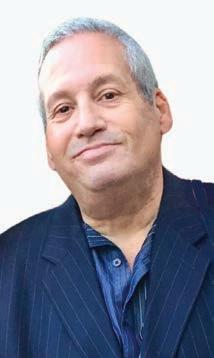
Brian was born, raised and lived his whole life in Phoenix, Ariz.
His career was spent helping those less fortunate than himself.
In his free time, he loved comedy writing and hanging out with his friends. He had a great love of cats, the Phoenix Suns and the Pittsburgh Steelers. He loved spending time with his family.
Our hearts are very saddened by Brian leaving us way too soon, but we find comfort knowing he is with our Dad, Marvin Mony, watching over us.
40-CLASS SERIES: Pearls of Jewish Wisdom on Living with Kindness
Rabbi Dr. Shmuly Yanklowitz
May 2022 - Feb 2023 @ 10:00 am PT
Power of the Image: Photographic Thoughts on Torah Values
Shira Hecht-Koller
Wednesday, May 18 @ 1:00 pm PT
Prozbul: Innovative Halachic Change or Gaming the System?
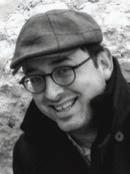
Rabbi Zvi Hirsch eld
Wednesday, June 8 @ 10:00 am PT
Why Bad Stu Happens: Two Dissident Theodicies
Rabbi Rachel Adler
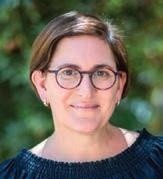
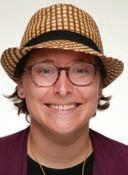
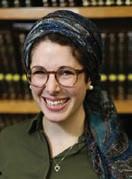
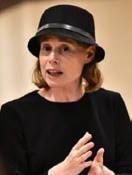
Thursday, June 23 @ 1:00 pm PT
LIVING on the SIDE of LIFE: An Interpretation of Jewish Living
Rabbi Dr. Yitz Greenberg
Monday, July 18 @ 10:00 am PT
The Jews of China: Enduring Survival in the Middle Kingdom
Dr. James Baskind
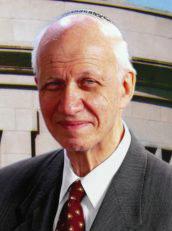
Thursday, Aug 18 @ 1:00 pm PT
Staying Human –Can Judaism speak to the issues raised by Arti cial Intelligence?
Harris Bor
Wednesday, Sept 14 @ 10:00 am PT
My journey in science and engineering as a Torah observant Jewish woman
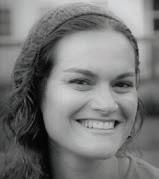
Dr. Rosa Krajmalnik-Brown
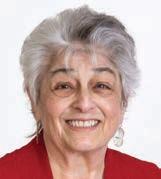
Monday, May 9 @ 1:00 pm PT
The Tragedy of Heruta: The Madonna who Became a Whore Gila Fine
Wednesday, May 25 @ 10:00 am PT
A VBM Book Launch & Lunch! The Book of Proverbs: A Social Justice Commentary
Rabbi Dr. Shmuly Yanklowitz
Wednesday, June 8 @ 1:00 pm PT
Is Peace possible in Jerusalem?
Ittay Flescher
Wednesday, June 29 @ 10:00 am PT
All Hands onDeck: The Gifts That Introverts and Extroverts Bring to Jewish Leadership and Why It Matters
Rabbi Edward Bernstein
Wednesday, July 20 @ 1:00 pm PT
Women’s Resilience and Survival in the Holocaust
Professor Bjorn Krondorfer
Wednesday, Aug 24 @ 1:00 pm PT
God’s Prayer: The Central Image of Selihot
Rabbanit Leah Sarna
Thursday, Sept 15 @ 1:00 pm PT
Learn
Shmitta: From Biblical Narratives to Contemporary Perspectives
Rabbi Dr. Avital Hochstein
Wednesday, May 11 @ 10:00 am PT
King David: Man of War and Politics, Man of God, Man of Contradictions. Based on a close reading of the Books of Samuel
Rabbi Dr. Jeremy Rosen
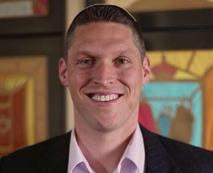
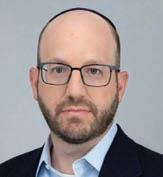
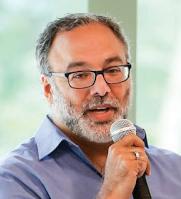
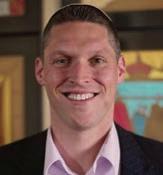
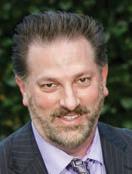
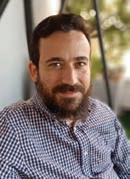
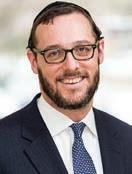
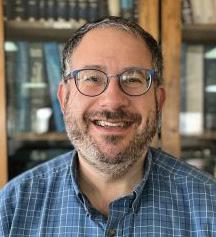

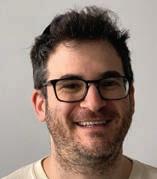
Thursday, May 26 @ 1:00 pm PT
Brothers Crying Out from the Ground:The Biblical Origins of Our Divided Society
Dr. Judy Klitsner
Thursday, June 9 @ 10:00 am PT
The Battle of De nitions: What is Antisemitism and why does its de nition matter?
Professor Joshua Shanes
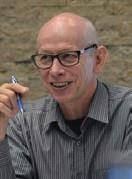
Thursday, July 7 @ 1:00 pm PT
Shtisel’s Shas: A Talmudic Look at the Hit Israel T.V. Show
Professor Shai Secunda
Thursday, July 28 @ 1:00 pm PT
The Problem of Evil
Samuel Lebens
Wednesday, Aug 31 @ 10:00 am PT
“Shomei Keoneh” (Hearing Legally Counts as Speaking): Creating a Community Which is Inclusive of the Blind, the Deaf and the In rm
Rabbi Ysoscher Katz
Wednesday, Sept 21 @ 1:00 pm PT
A memoir that explores the stories of survival, tragedy and hope
Joel Poremba
Thursday, Aug 4 @ 1:00 pm PT
Finding Spirituality in the Laws and Customs of the High Holidays
Rabbanit Sharona Halickman
Thursday, Sept 1 @ 9:00 am PT
What do we pray for this High Holidays?
Rabbi David Wolpe
Thursday, Sept 22 @ 1:00 pm PT
Rabbi Dr. Shmuly Yanklowitz President & Dean
Messianism, Zionism, and Religious Radicalism: Four Spiritualties in Israel
Rabbi Menachem Creditor
Thursday, May 12 @ 1:00 pm PT
Third-Party Peacemakers in Judaism: Text, Theory, and Practice – Book Talk with
Rabbi Dr. Daniel Roth
Rabbi Dr. Daniel Roth
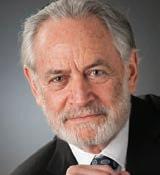
Thursday, June 2 @ 10:00 am PT
Cain and Abel’s Day In Court: What The World’s
First Murder Can Teach Us About Dispensing Justice And Injustice
Rabbi Dan Ornstein
Thursday, June 16 @ 1:00 pm PT
Corona Exegesis: Political Cartoons, Jewish Holidays, and Israeli Society
Dr. Matt Reingold
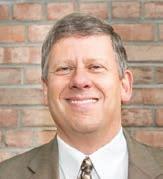
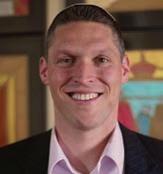
Wednesday, July 13 @ 1:00 pm PT
Prophecy: What Does it Mean Anyway?
Jonnie Schnytzer
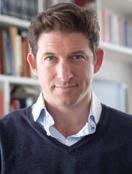
Thursday, Aug 11 @ 10:00 am PT
Nature and Revelation: what the Jewish calendar teaches us about their relationship
Dr. Elana Stein-Hain
Thursday, Sept 8 @ 1:00 pm PT
Shalom Aleichem: a model for working with development trauma
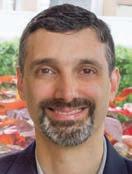
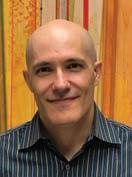
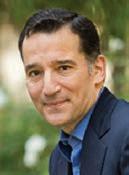
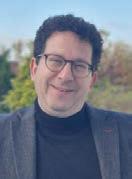
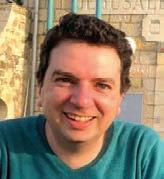
Rabbi Lisa Goldstein
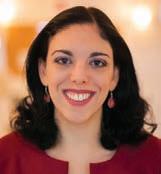
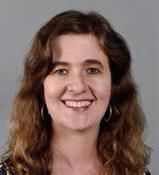
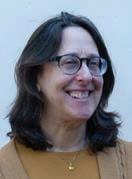
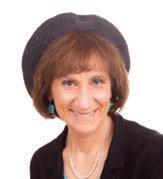
Thursday, Oct 20 @ 1:00 pm PT
Ruach Hamidbar
Almost all events on Zoom, just $18 per event! Season Pass Holders enjoy unlimited attendance for $54 a month Learn More at www.ValleyBeitMidrash.org
